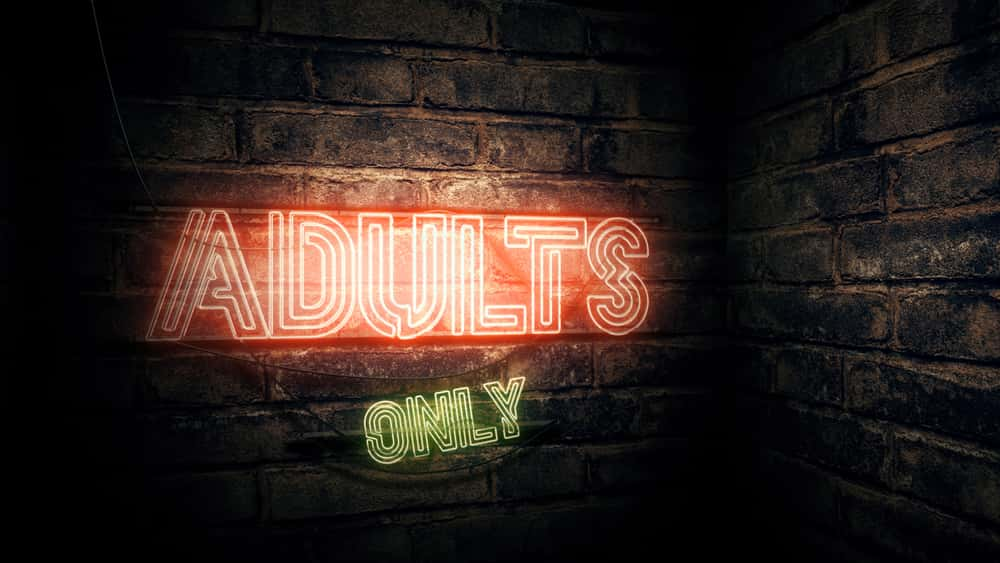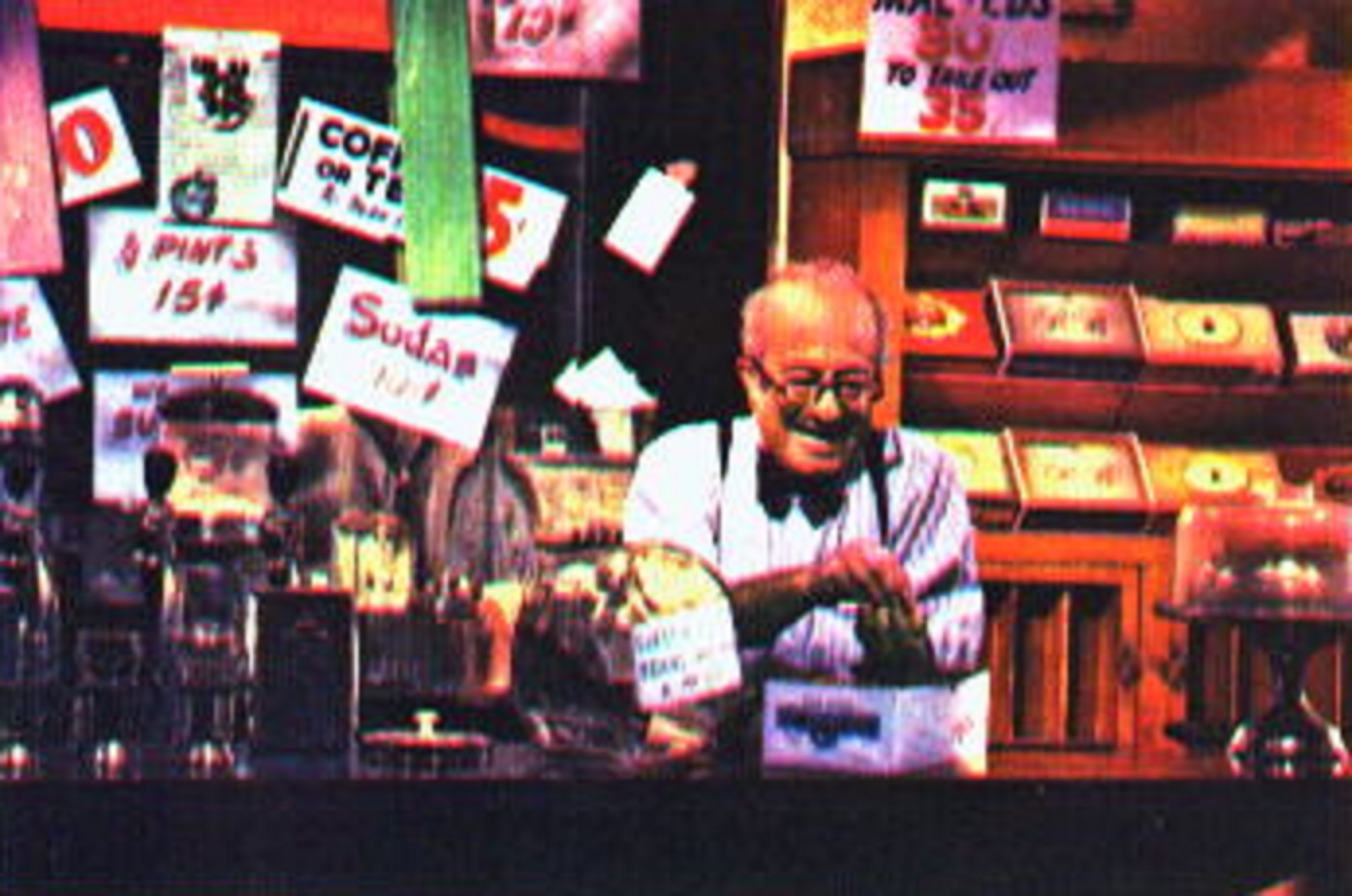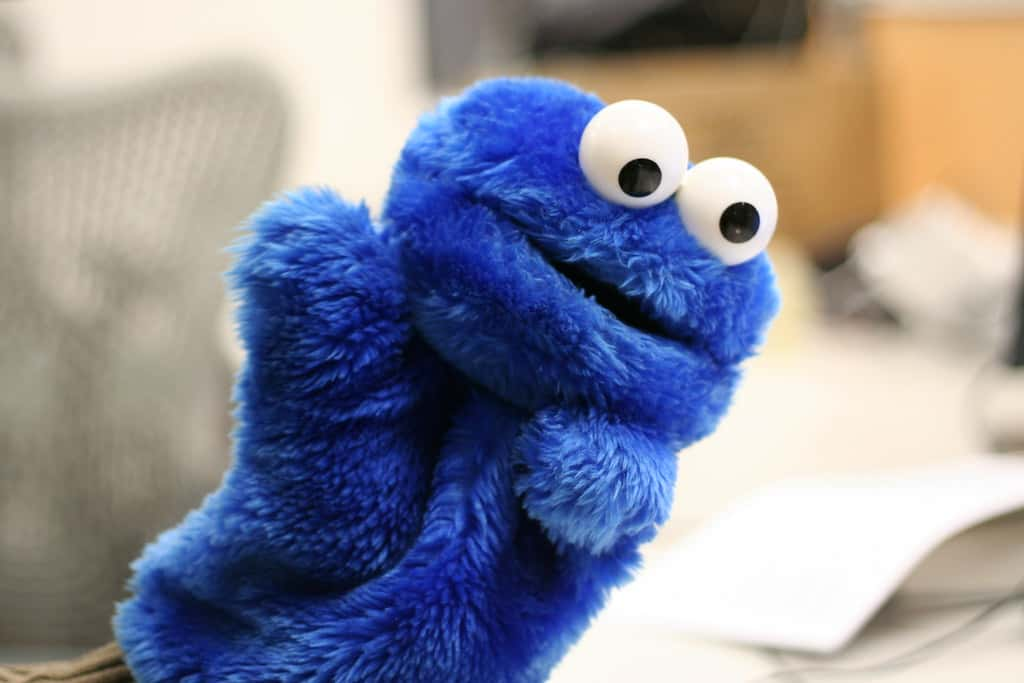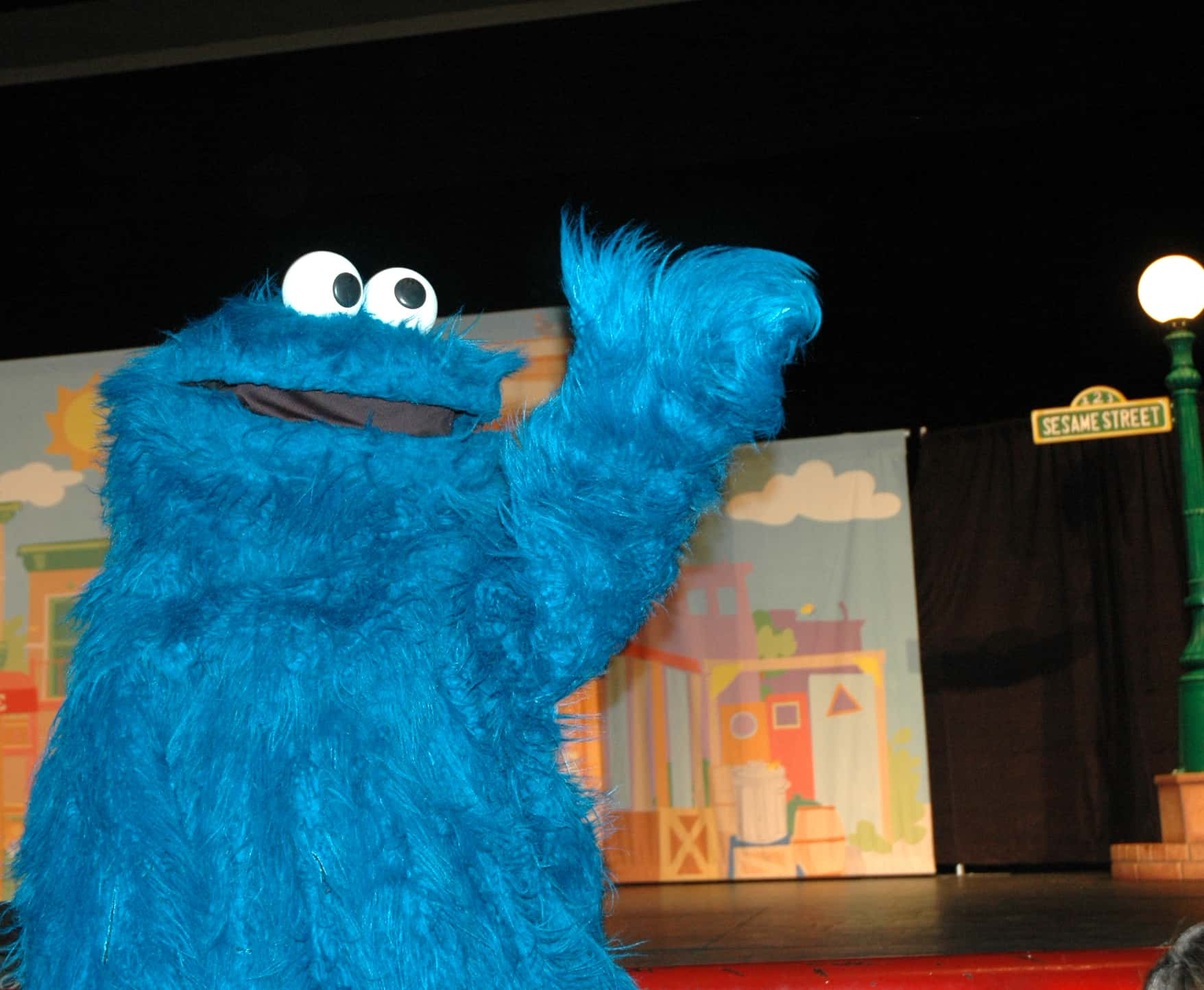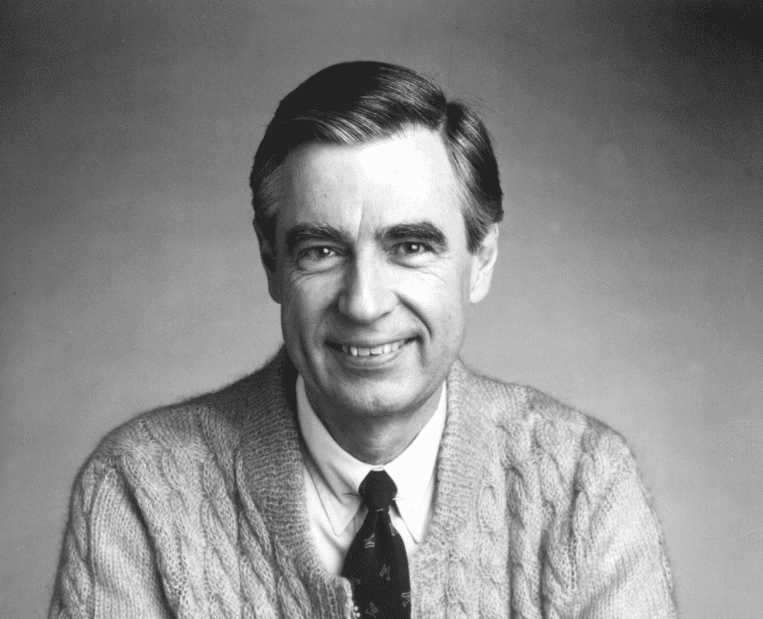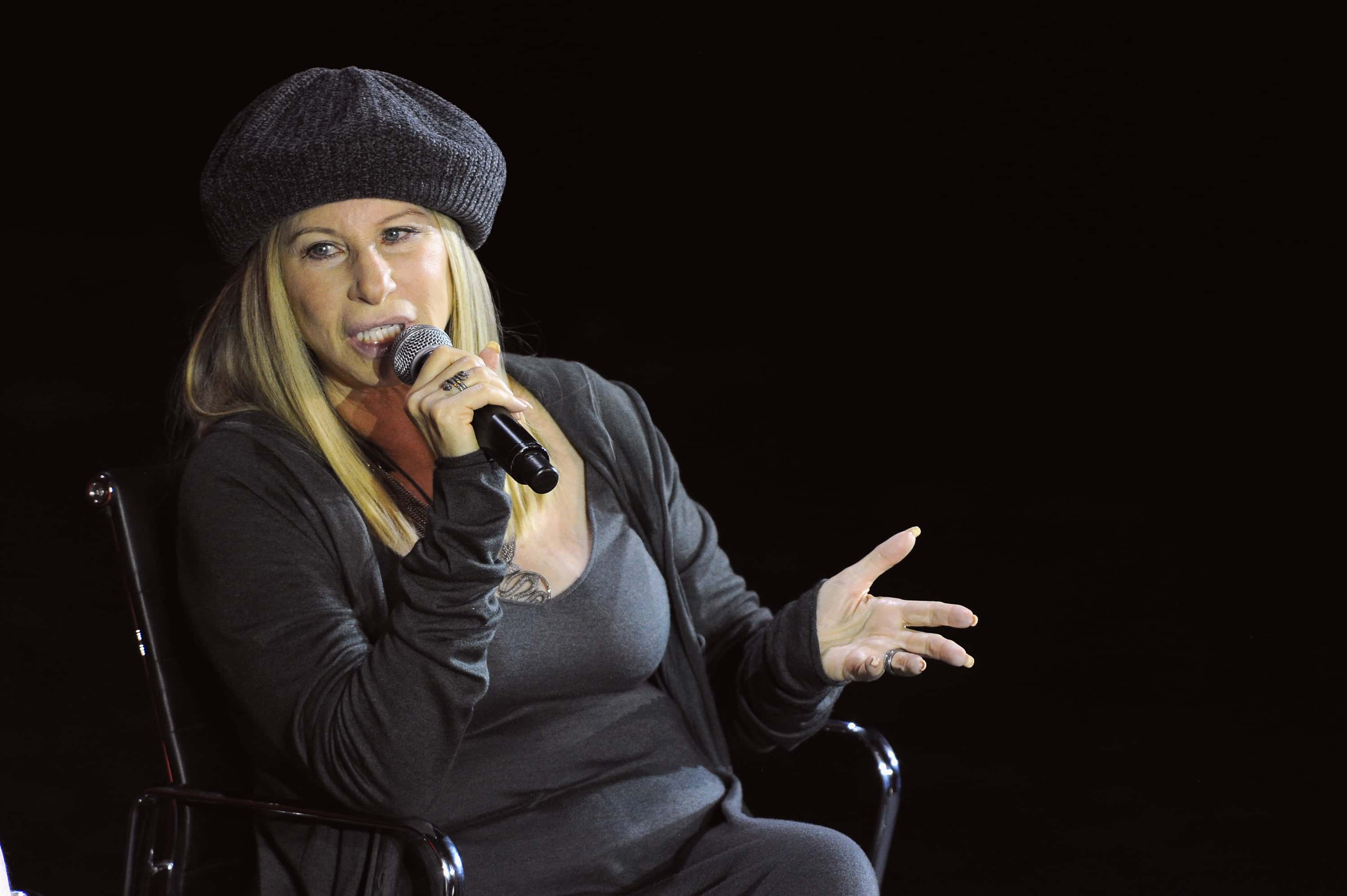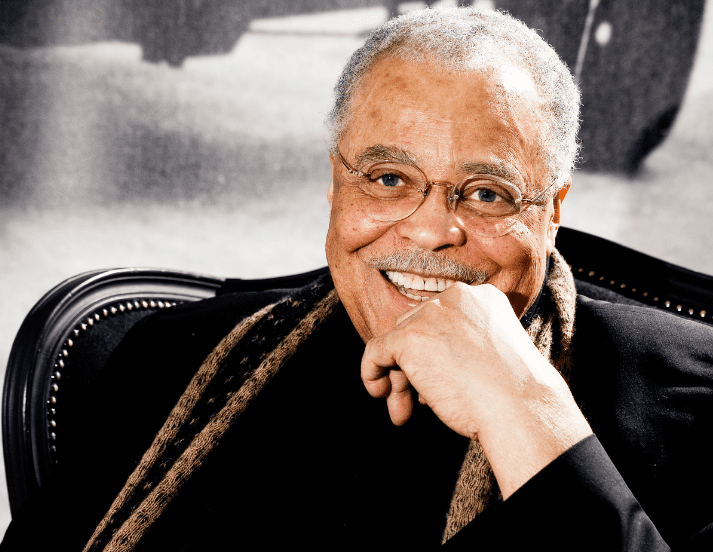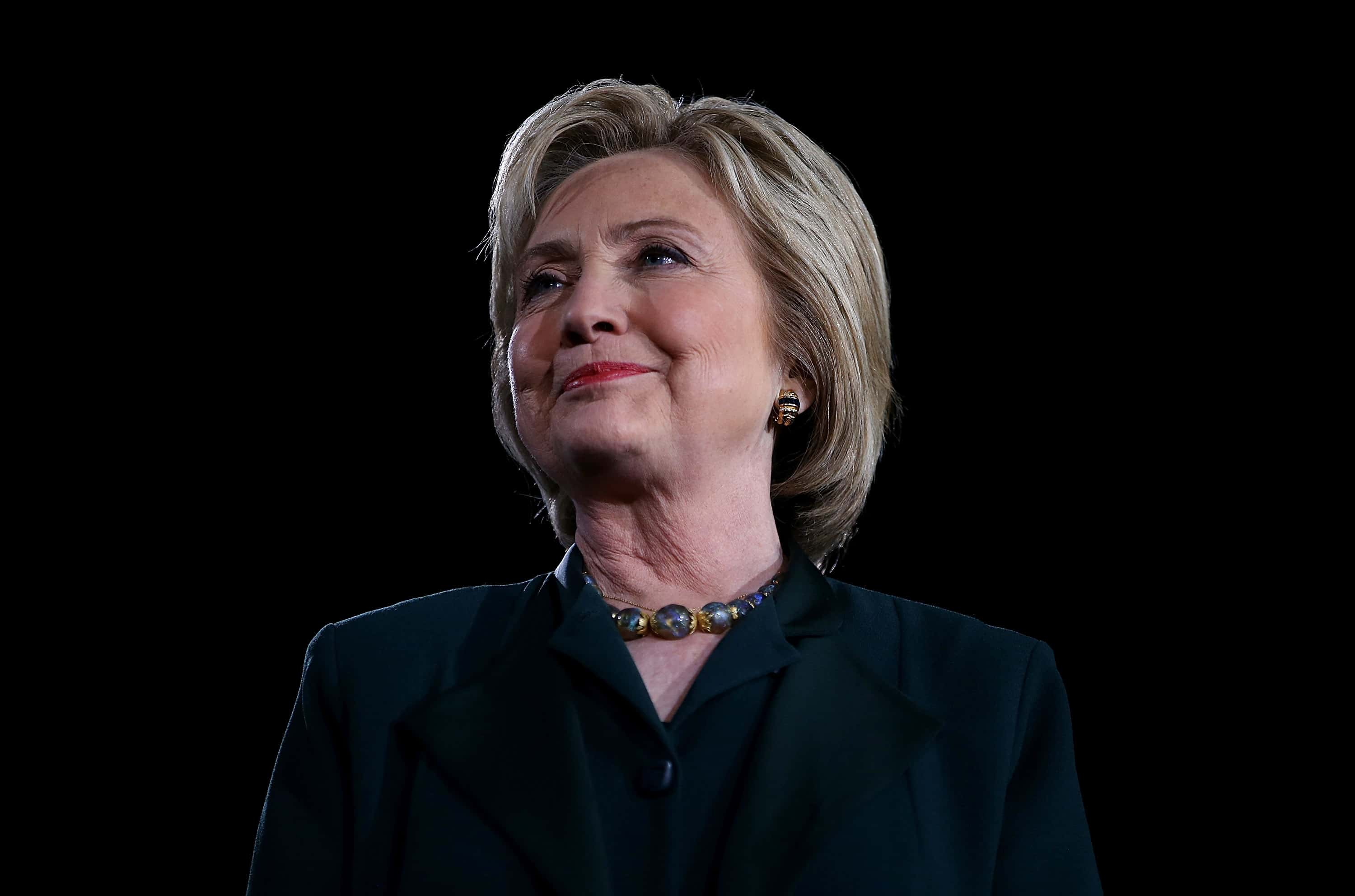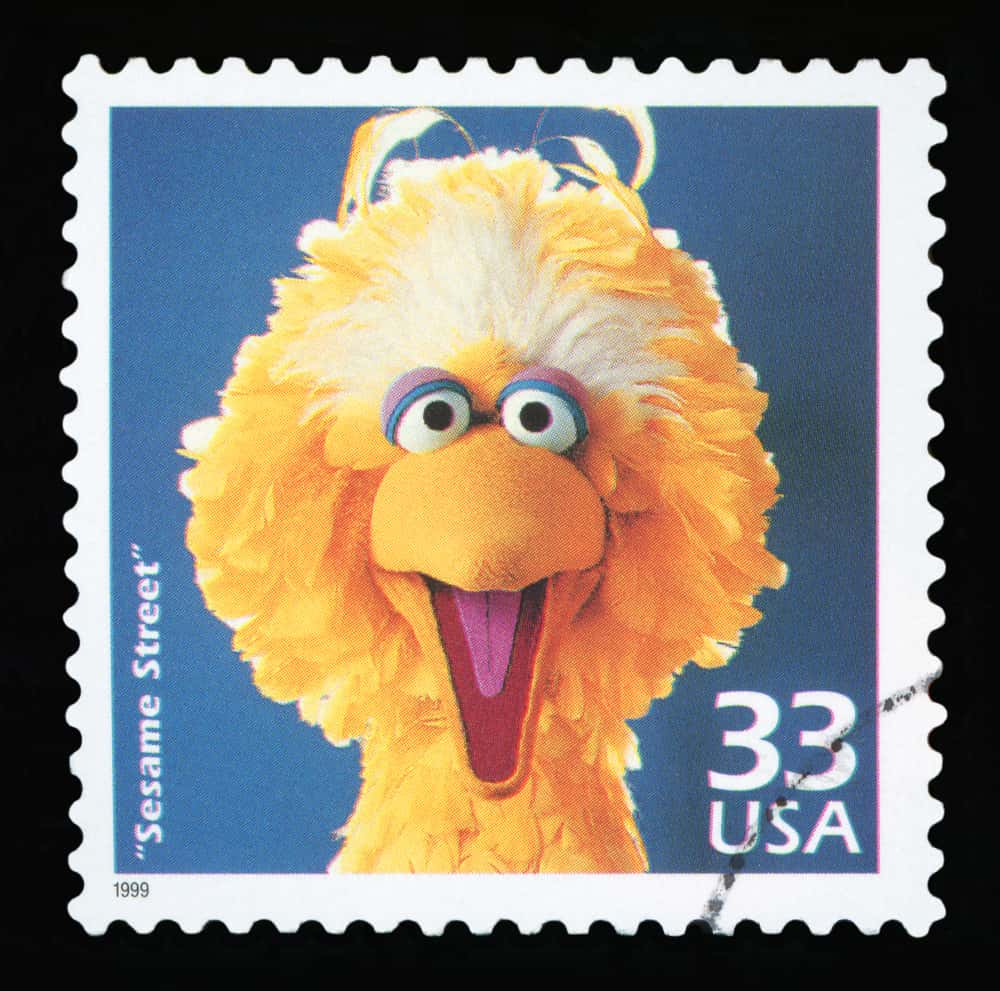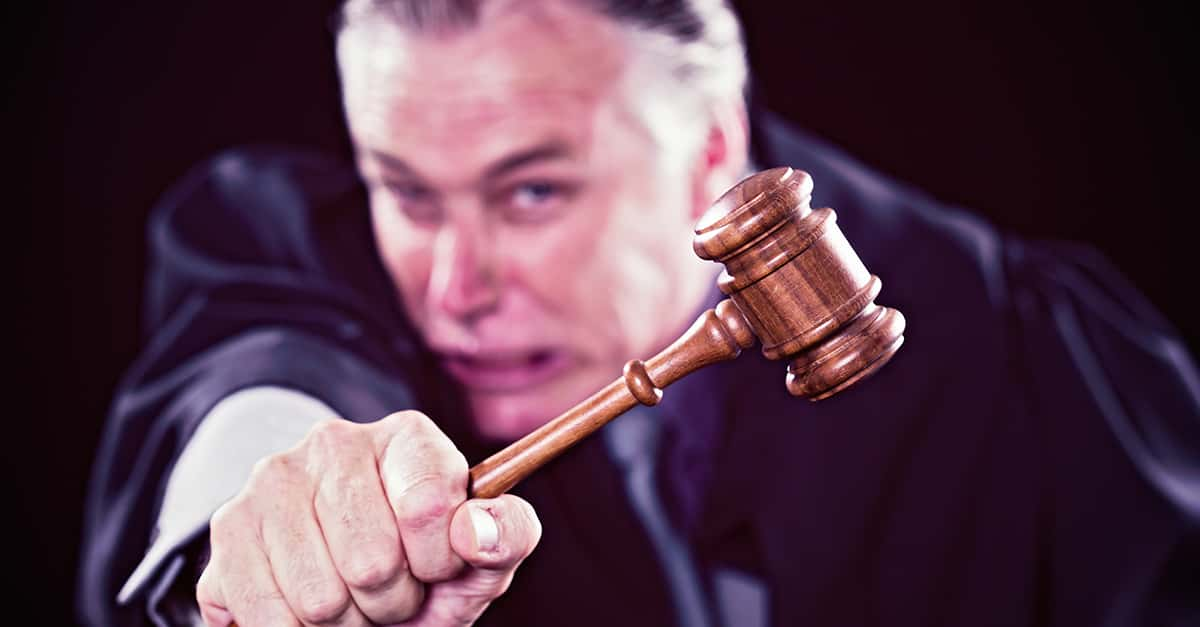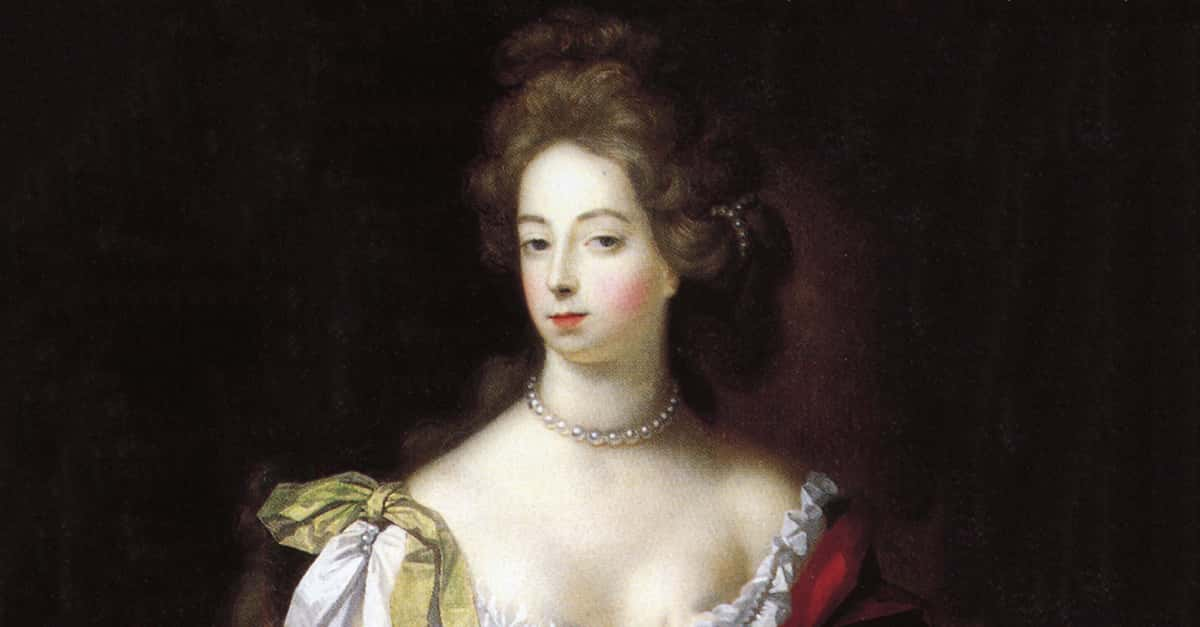“Sesame Street was built on the idea that a show that could capture a child's attention could also give the child an education. That idea turned out to be wildly successful".—Elizabeth Flock
Sesame Street is an entertaining and educational children’s show that uses sketch comedy, live action, animation, and puppetry to deliver educational content to young children in a fun way. It first aired on PBS on November 10, 1969. Generations of kids grew up watching the iconic show and its beloved cast.
Characters such as Big Bird, Cookie Monster, Elmo, Grover, Oscar the Grouch, and Bert & Ernie address themes such as tolerance, diversity, and conflict resolution. In 2019, the show began a year-long celebration in honor of its 50th anniversary. What could be a better time to read 50 sunny facts about the treasured show?
1. Raising the Bar
When Sesame Street came on the air, the programming that existed for children was mostly made up of low-quality animated shows with little educational value. Sesame Street changed that landscape by introducing fully-realized characters who met kids at their level. The use of humor and songs was also revolutionary, and definitely changed things for the better!
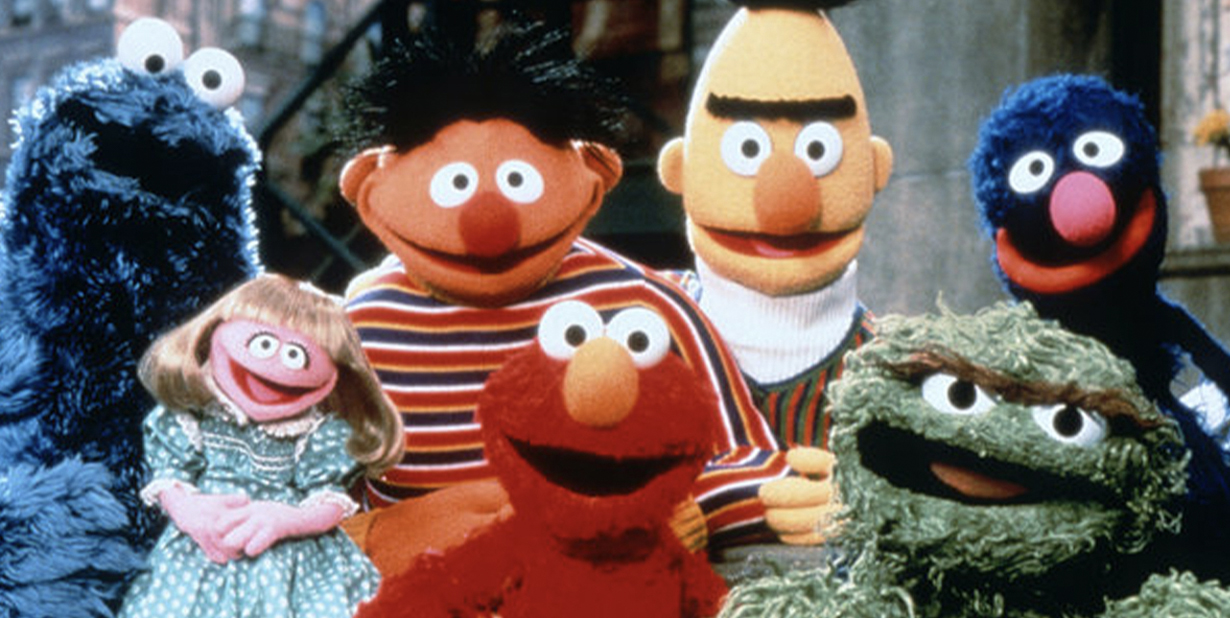
2. Becoming Real
Originally, none of the adults on the show could see Mr. Snuffleupagus, leading to poor Big Bird being teased about his imaginary friend. In 1985, the producers decided to make him visible. It's believed they made this decision because of their worry that children might not talk to their parents about important subjects like gender misconduct for fear of not being believed.
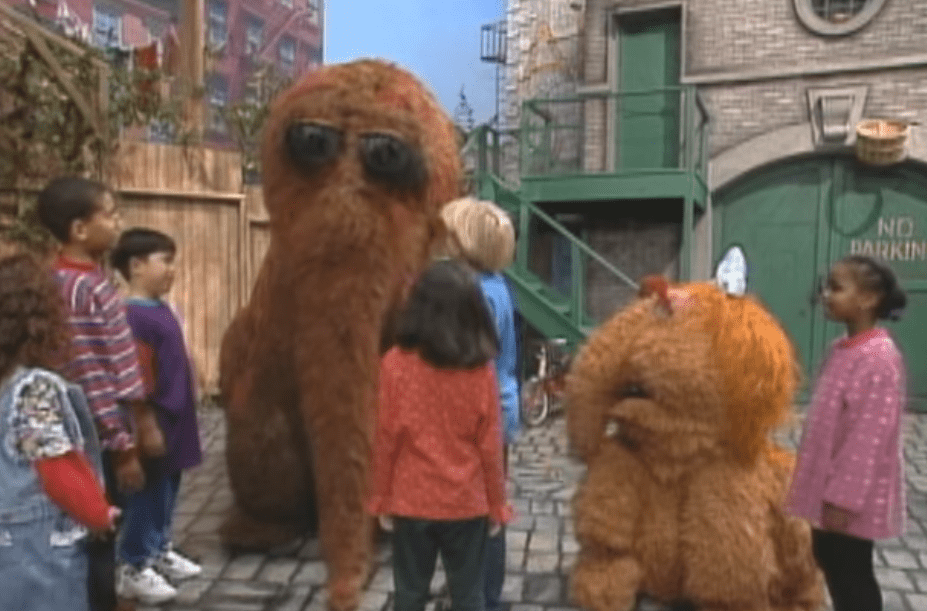 Sesame Street, Sesame Workshop
Sesame Street, Sesame Workshop
3. Billboard Hit
On February 25, 1970, Ernie debuted his signature song, "Rubber Duckie," on an episode of the show. The song became so popular that it was released as a single with the Sesame Street theme on the B side. The song even became a top 100 hit on the Billboard Chart!
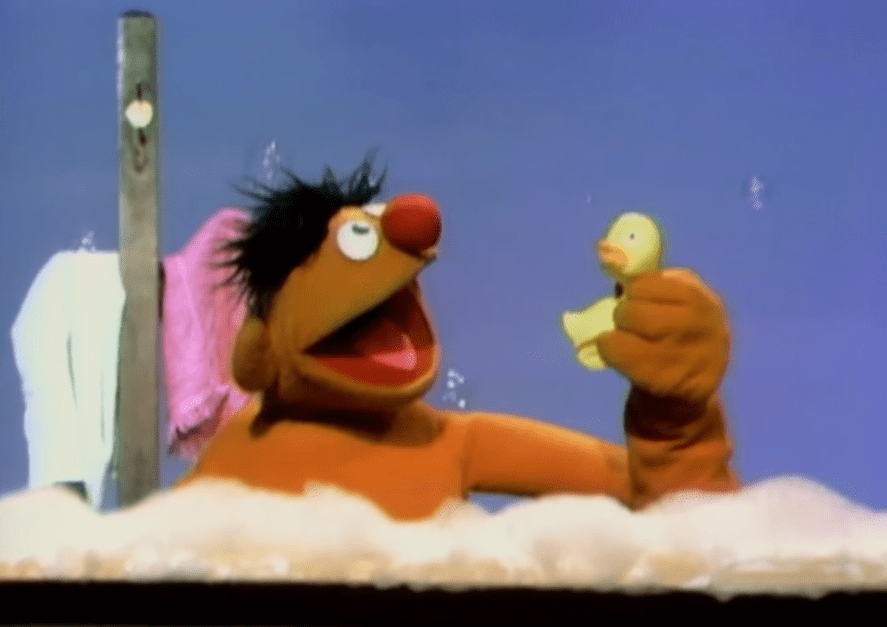 Sesame Street, Sesame Workshop
Sesame Street, Sesame Workshop
4. A Revolutionary Idea
The concept for Sesame Street was simple—create a children’s television show that could offer a pre-school education to kids who couldn’t afford pre-school. Creators Joan Ganz Cooney (a producer at public television’s Channel 13 in New York) and Lloyd Morrisett (an experimental educator at the Carnegie Corporation) drafted a proposal for the Carnegie Corporation, and by the summer of 1968, they raised $8 million to fund the show. And to think that was before GoFundMe!
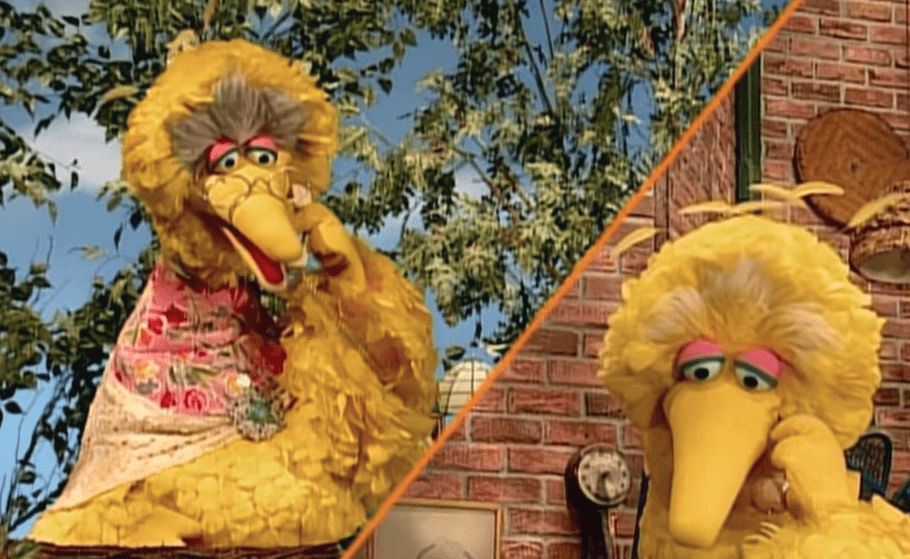 Sesame Street, Sesame Workshop
Sesame Street, Sesame Workshop
5. A Look Like No Other
The look of Sesame Street was like nothing anyone had seen before on television. The set was a brownstone stoop with graffiti and garbage cans under the front windows, just like in a real inner-city neighborhood. It also featured a diverse cast of people of different races, which was totally ahead of its time!
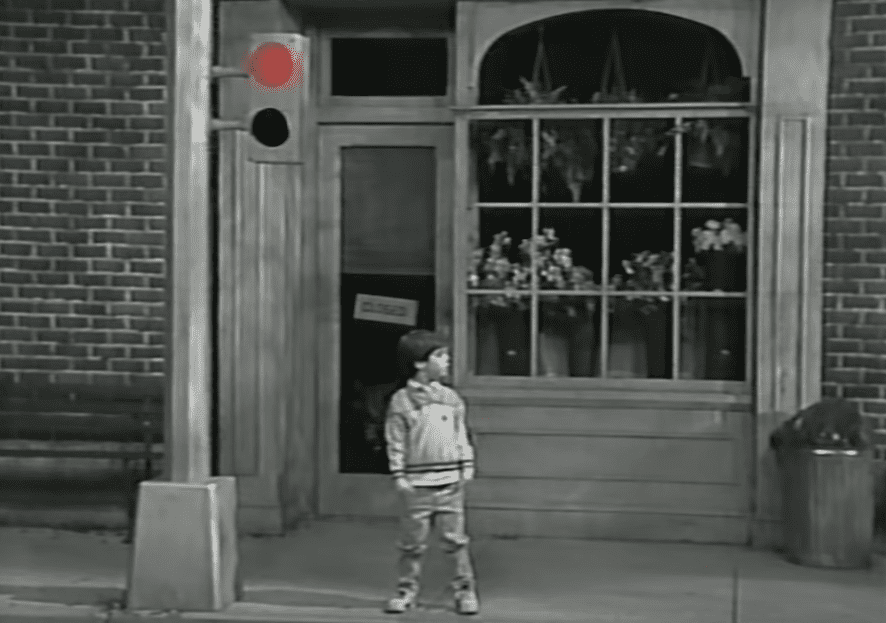 Sesame Street, Sesame Workshop
Sesame Street, Sesame Workshop
6. Brought to You By…
Unlike other television shows, which recognize commercial sponsors and advertisers, letters, numbers, and learning ideas sponsor each episode of Sesame Street. In the show’s 43rd season, the sponsorship expanded to pretend sponsors, parodying the groups that actually do fund the show and other programs on PBS.
7. Big Bird on the Big Screen
If you’ve always wanted to see the gang from Sesame Street come to life on the big screen, in 2021, you’ll get your wish! Warner Brothers, in partnership with Sesame Workshop, is developing a musical feature film that will reportedly also star Anne Hathaway alongside Big Bird, Cookie Monster, Kermit, and the rest of the Sesame Street gang.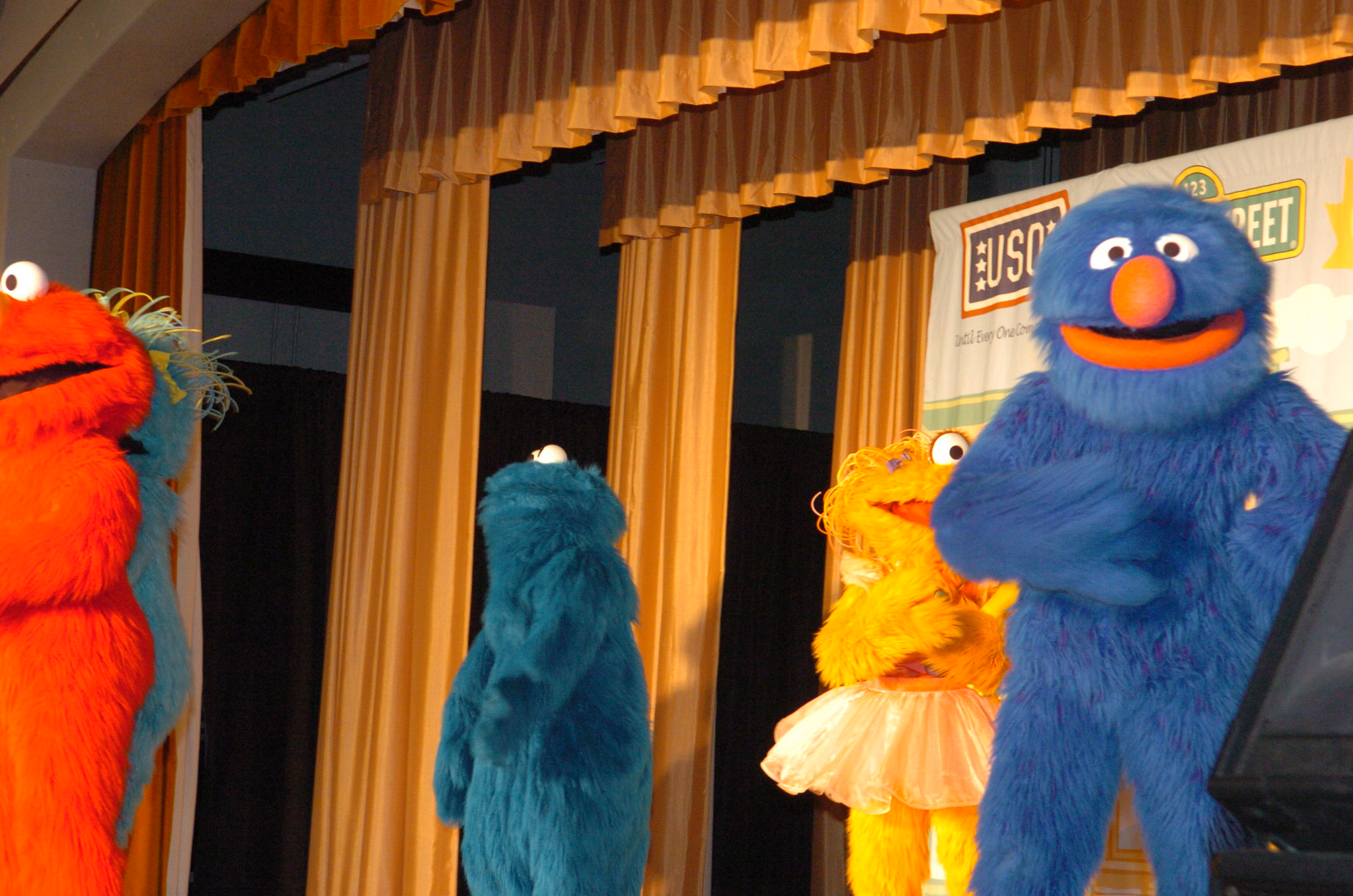 USAG- Humphreys ,Flickr
USAG- Humphreys ,Flickr
8. Too Stereotypical
Not all of the Muppet characters on Sesame Street were well-received. From 1970-1975, an African-American Muppet named Roosevelt Franklin recurred on the show, attending Roosevelt Franklin Elementary School, where he taught concepts like family, pride, respect, African geography, and most importantly, not drinking poison.
Roosevelt was a pretty popular character with kids, but not as much with parents, who wrote letters to the show complaining that he portrayed negative African-American stereotypes and that his rowdiness’s made him a bad example. Eventually, the show caved to pressure and dropped the character altogether. What a shame!
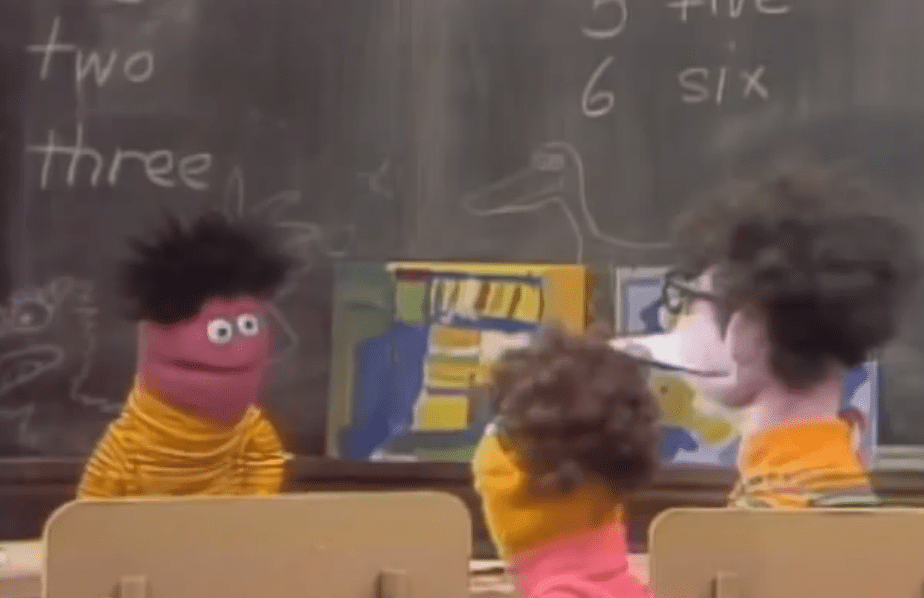 Sesame Street, Sesame Workshop
Sesame Street, Sesame Workshop
9. The Anti-Sesame Street
The Tony Award-winning musical Avenue Q is a parody of Sesame Street that makes fun of the show’s core values. Like the real Sesame Street, the storyline focuses on a friendly neighborhood of diverse actors and puppets, but that’s where the similarities end. The show has been labeled "Sesame Street for Adults," and is absolutely not G-rated!
To get a hint, one of the show's creators later went on to create The Book of Mormon with Matt Stone and Trey Parker from South Park. 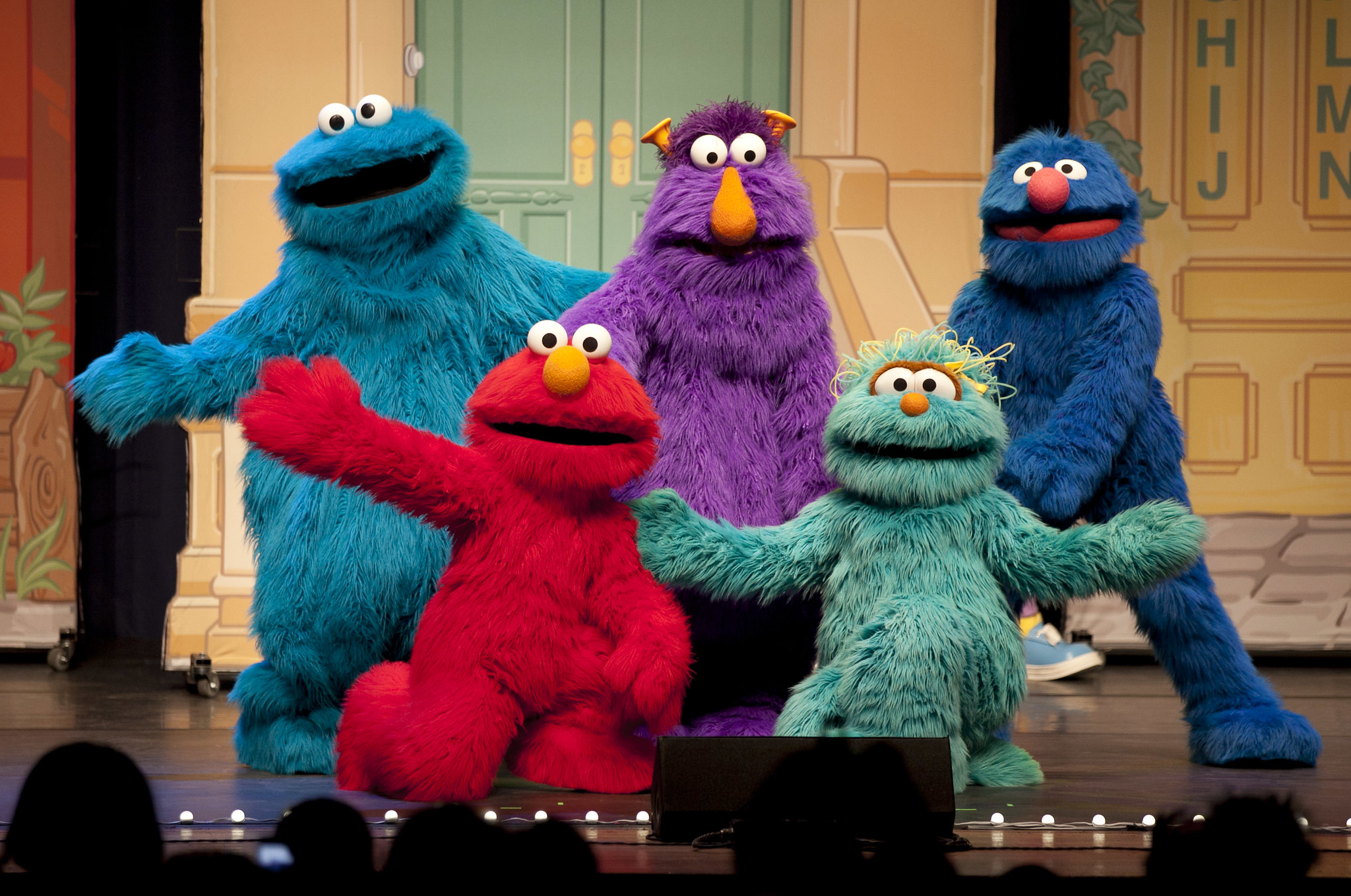 The USO, Flickr
The USO, Flickr

Sign up to our newsletter.
History’s most fascinating stories and darkest secrets, delivered to your inbox daily. Making distraction rewarding since 2017.
10. For Adults Only
Episodes from the early seasons of Sesame Street were released on three DVD sets called Sesame Street: Old School, and come with a warning label “For adults only". Now you’re probably wondering how a show aimed at pre-schoolers could possibly be for adults—according to Carol-Lynn Parente, the executive producer of Sesame Street, among the offending scenes are Alistair Cookie having a smoke and later eating a pipe, which “models the wrong behavior". How terrorizing!
11. Making History
When Sonia Manzano was cast as Maria on Sesame Street in 1971, she became the first ever Latina in a leading role on American TV. Manzano played Maria until her retirement in 2015. Her announcement sparked a day of mourning on social media, but her impact on the show on and off-screen will be remembered forever.
12. A Sad Farewell
When Will Lee, the actor who played Mr. Hooper on the show, passed of a heart attack in December 1982, the producers initially thought about just having Mr. Hooper retire to Florida. Instead, they chose to turn it into a teachable moment by using the sad event to teach kids about passing. They chose to air the special episode on Thanksgiving Day, 1983, reasoning that a lot of parents would be home watching with the kids that day and could offer emotional support if needed.
13. Sesame Street's Yanny or Laurel
In December 2018, the internet was ablaze with the question of whether or not Grover used the F word on the show. Depending on what you hear, Grover either says "move the camera! Yes, yes, that's a ****ing excellent idea!" or "yes, yes that sounds like an excellent idea". Which version do you hear?
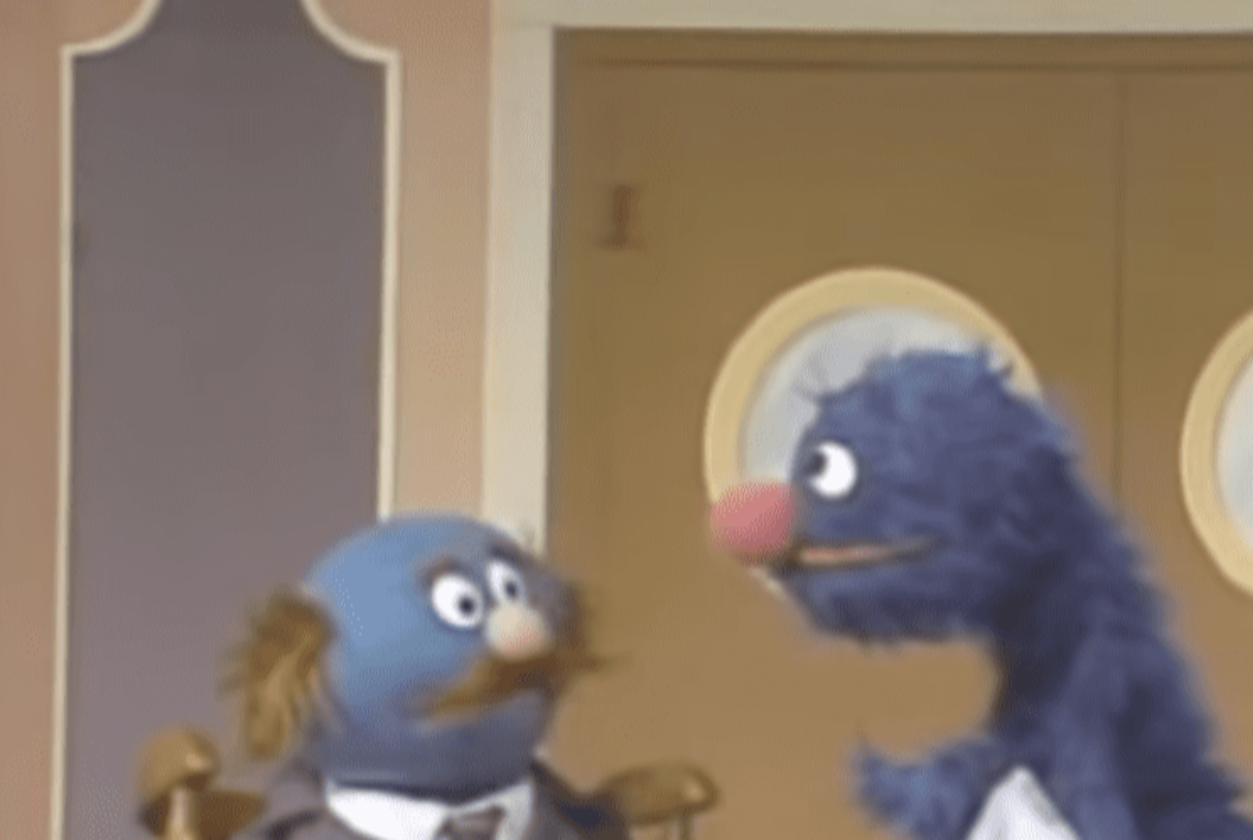 Sesame Street, Sesame Workshop
Sesame Street, Sesame Workshop
14. Spilling His Cookies
Cookie Monster made an appearance on a 2018 episode of The Late Show with Stephen Colbert, where he participated in the "Midnight Confessions” segment, spilling his cookies...er, secrets. He confessed that he uses “Just for Monsters” to keep his fur blue and that he still has trouble remembering the alphabet past the letter C (despite practicing it for half a century). He also said that he loves cookies so much, he can’t even refuse them on the internet!
15. Party Monster
The Late Show wasn’t the first time Colbert had the opportunity to interview Cookie Monster. On a 2008 episode of the Colbert Report, Cookie Monster admitted to having had a few "cookie-related episodes" in the 70s and 80s. The fuzzy blue Muppet referred to himself as "the Robert Downey, Jr. of cookies". He also ended the episode by trying to eat Colbert’s Peabody Award.
16. The Not So Friendly Vampire
The character Count von Count is a parody of Bela Lugosi’s portrayal of Dracula, Eastern European accent and all. In the early days of the show, the Count was a bit on the scary side. He would hold his cape over his face, laugh maniacally, and used hypnotic powers to temporarily stun people so he could finish counting.
Show-runners eliminated these features because they worried that kids would be too scared. Now he’s just an ordinary muppet who loves to count.
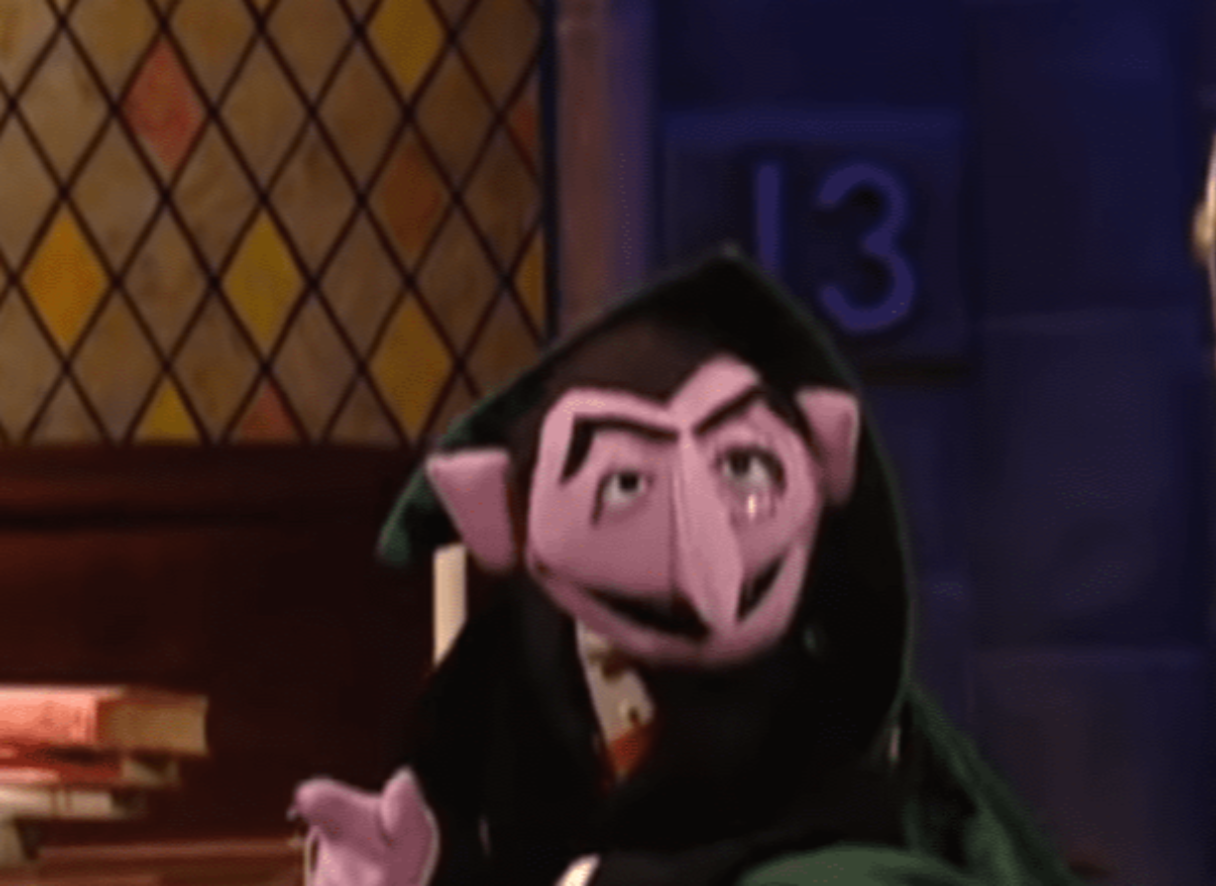 Sesame Street, Sesame Workshop
Sesame Street, Sesame Workshop
17. Changing Colors
Oscar the Grouch wasn’t always the green monster we know and love. In the first season, Oscar was orange, but Jim Henson decided to change his color to green in season two. Unlike some television shows that made big changes and hoped nobody would notice, Oscar explained his color change by saying that he’d gone to Swamp Muddy Mushy on vacation and turned green overnight. Totally believable, right?
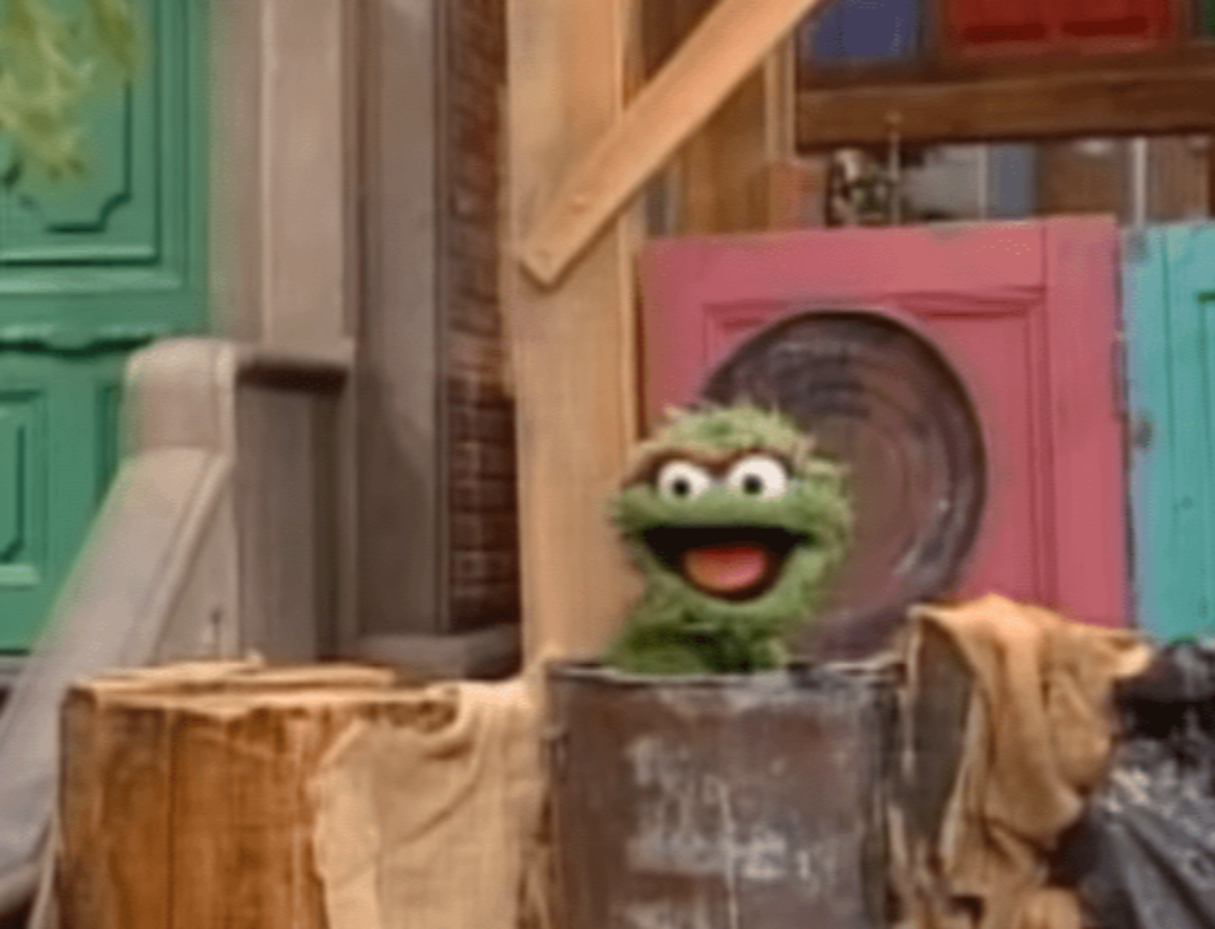 Sesame Street, Sesame Workshop
Sesame Street, Sesame Workshop
18. Scary Snuffy
The original Mr. Snuffleupagus (Big Bird’s imaginary friend) was terrifying. He had yellow slits for eyes and looked pretty sinister. Somebody must have clued in that he didn’t exactly look warm and fuzzy, because not long after his first appearance, the puppet's appearance changed. He had lighter eyes with thick, black fur over them, and he became much more padded. Today, Snuffy is shaggier with a dark orange tint to his fur and has much fuller eyelashes. He's a far cry from the 1971 incarnation, thank goodness.
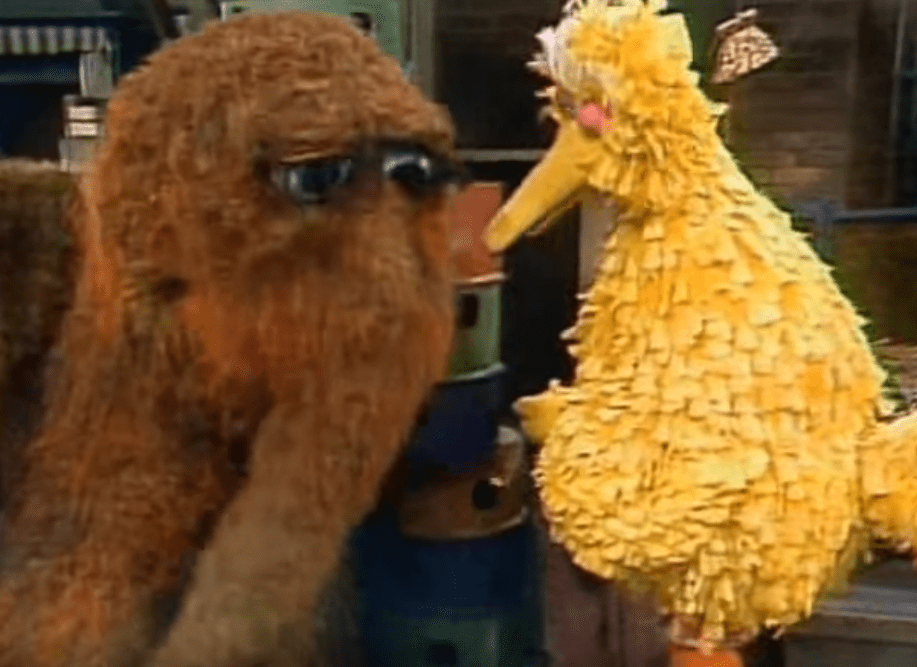 Sesame Street, Sesame Workshop
Sesame Street, Sesame Workshop
19. Crossover Event
You wouldn’t think that there would be much room for crossover in children’s programming, but on the 1981 season finale of Sesame Street, the show hosted an epic mash-up. The beloved host of Mr. Rogers’ Neighborhood, Fred Rogers himself, guest-starred on the show. Five-year-olds around the world cheered.
20. Covered by the Carpenters
The Carpenters recorded one of the show’s most famous songs, "Sing" even though staff songwriter Joe Raposo originally wrote the tune. The Carpenters' version became incredibly popular, reaching #3 on the Billboard Top 100. Sesame Street: not just for kids!
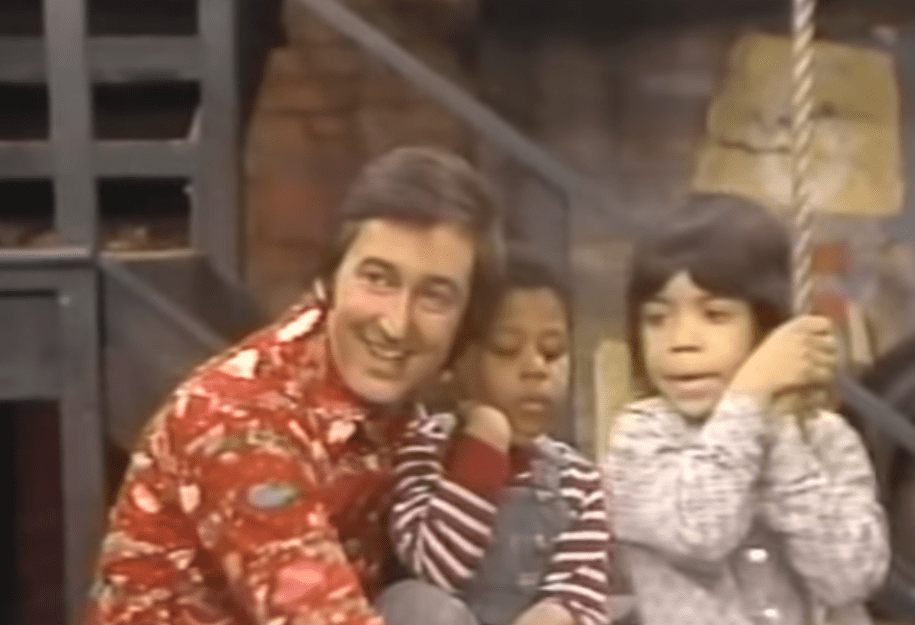 Sesame Street, Sesame Workshop
Sesame Street, Sesame Workshop
21. Sung by Streisand
The year before the Carpenters recorded their version of "Sing," Barbra Streisand had a minor hit with the song. Her cover reached #28 on the Easy-Listening chart but barely cracked the Billboard Top 100. Sorry Babs—you just didn’t have the same kind of magic.
22. Around the World with Sesame Street
Sesame Street always promoted multiculturalism. The show not only visited other cultures but spawned other versions in countries ranging from Germany to South Africa to China. 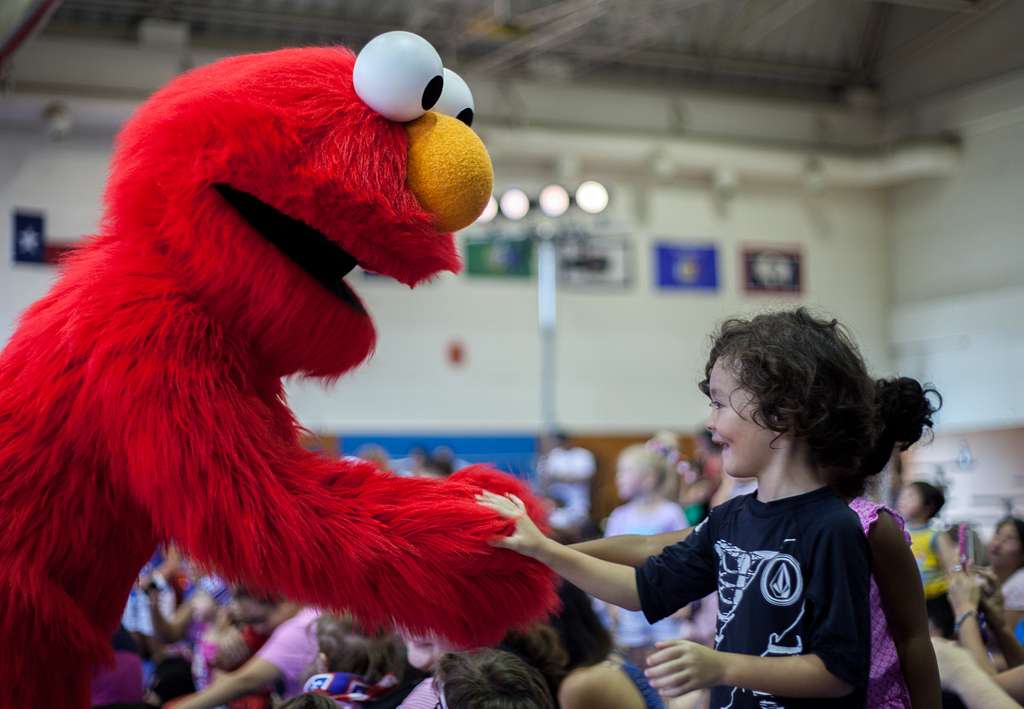 U.S. NAVY, Picryl
U.S. NAVY, Picryl
23. Big Bird’s Bear
Big Bird’s teddy bear’s name is Radar. This is a tribute to the popular television show M.A.S.H. and the character of Radar, who always slept with his teddy bear.
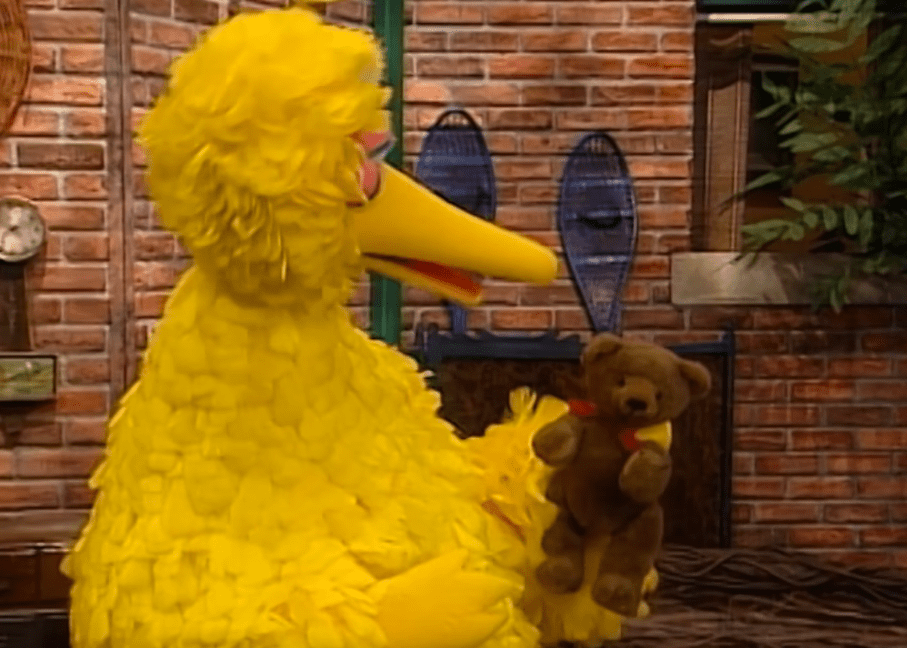 Sesame Street, Sesame Workshop
Sesame Street, Sesame Workshop
24. Grouchy Inspiration
Jim Henson and Sesame Street head writer Jon Stone based the character of Oscar the Grouch on the owner of a restaurant named “Oscar’s Salt of the Sea". Because the eatery was around the corner from Henson’s office, Henson and Stone often went to the restaurant for lunch. That's when they noticed that the owner Oscar Karp always dressed in black, looked a bit disheveled, and seemed pretty grouchy. A cab driver from the Bronx inspired the voice. The real life Oscar once drove puppeteer Caroll Spinney to the studio. Thus Oscar the Grouch was born!
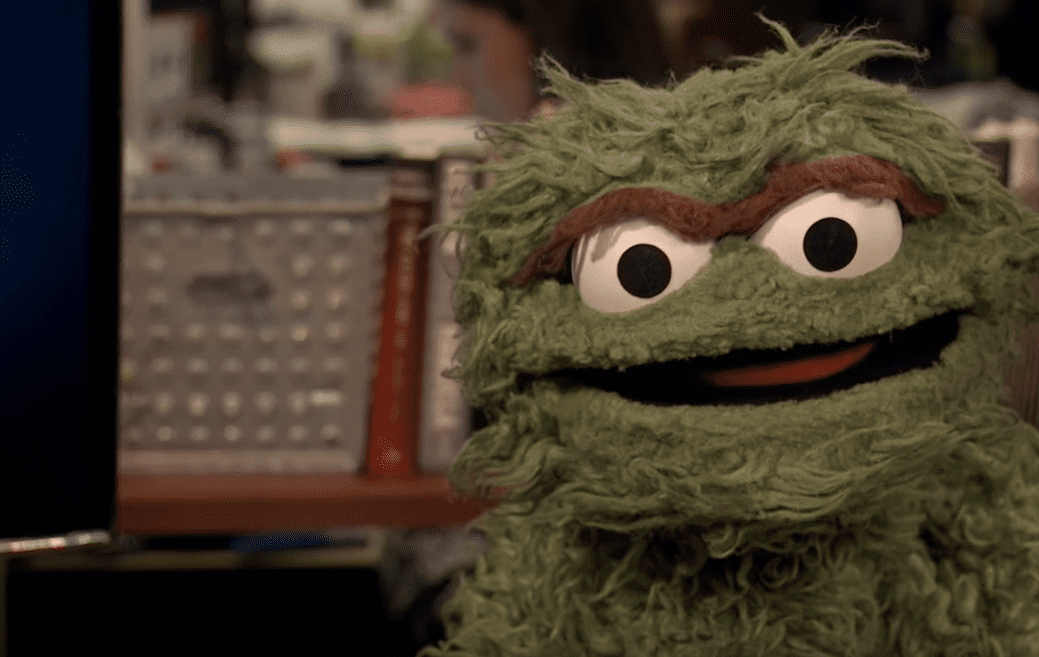 Sesame Street, Sesame Workshop
Sesame Street, Sesame Workshop
25. Not Like the Others
Those familiar with the show probably noticed that Oscar has different tastes (like his love of garbage) and manners (his bad attitude) than the other characters. The creators hoped that his character's differences could teach kids about people tolerance, but some people simply saw him as a reflection of poor urban Americans in the early seasons.
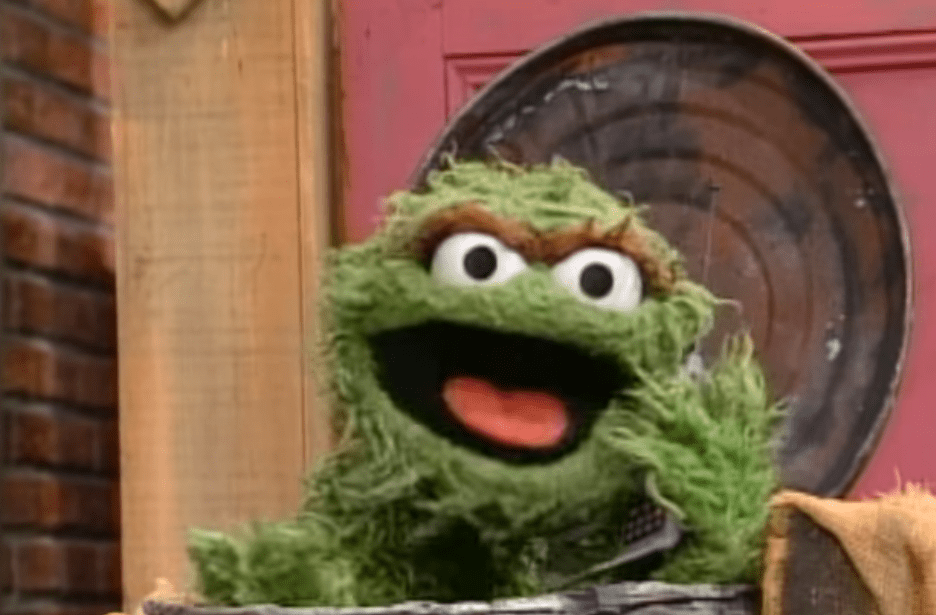 Sesame Street, Sesame Workshop
Sesame Street, Sesame Workshop
26. Separate Entities
When the show began, the humans and Muppets didn’t interact, and the Muppets were featured in a single sketch on their own. This changed when the producers realized that the kids were finding the human scenes boring and were much more interested in watching the Muppet characters. You don't say!
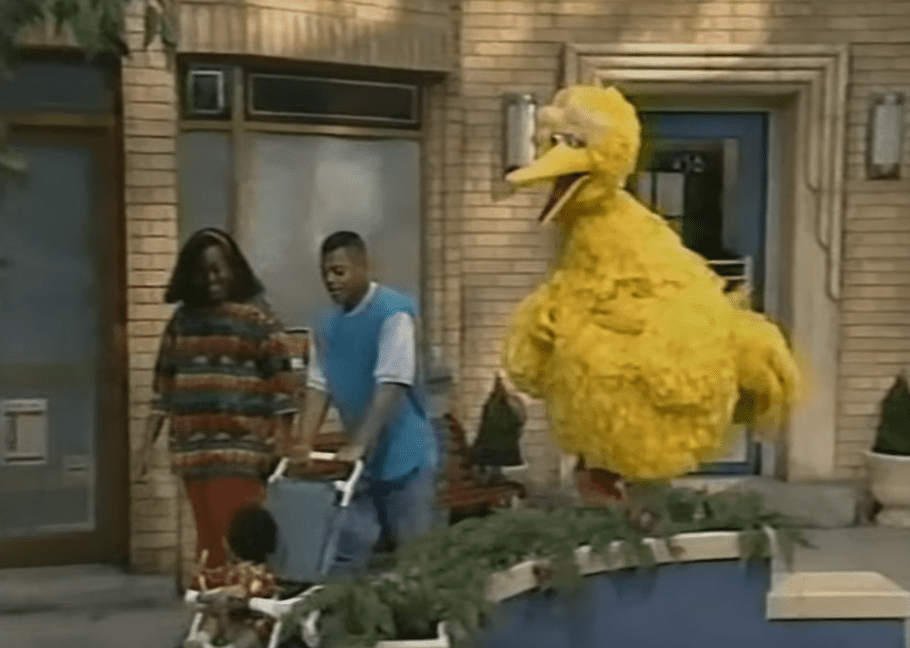 Sesame Street, Sesame Workshop
Sesame Street, Sesame Workshop
27. A Condition of Vampires
The Count isn’t just called Count because of his love of counting. His obsession with numbers is inspired by a real-life condition called arithmomania, which is a form of OCD in which people feel compelled to count things. According to folklore, vampires have this condition, which is why throwing rice at them is one supposed way of repelling a vampire. They'll need to stop and count each grain of rice, giving you time to get away.
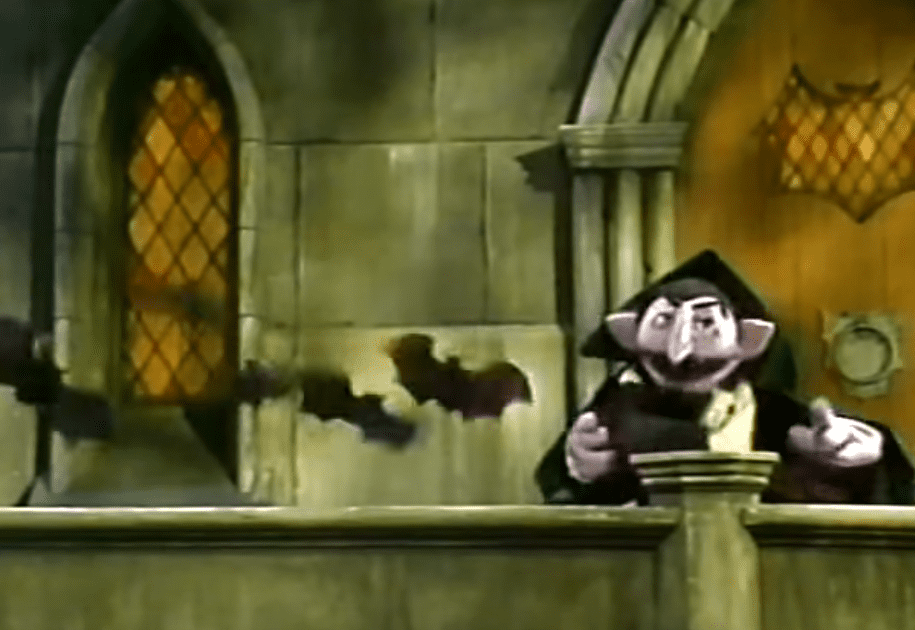 Sesame Street, Sesame Workshop
Sesame Street, Sesame Workshop
28. Winning Awards
Sesame Street won a record 189 Emmys, more than any other TV series for adults or children!
29. Roving Reporter
A recurring sketch from 1971 until 1994 was the Sesame Street Newsflash, featuring Kermit the Frog as a roving reporter for Sesame Street News. Kermit would appear wearing a trench coat and hat and holding a microphone, interviewing characters from history, fairy tales, and nursery rhymes, such as Rapunzel and Humpty Dumpty.
While kids may not have gotten the parody, they definitely would have recognized the fairy tales/nursery rhymes, and adults probably thought they were hilarious!
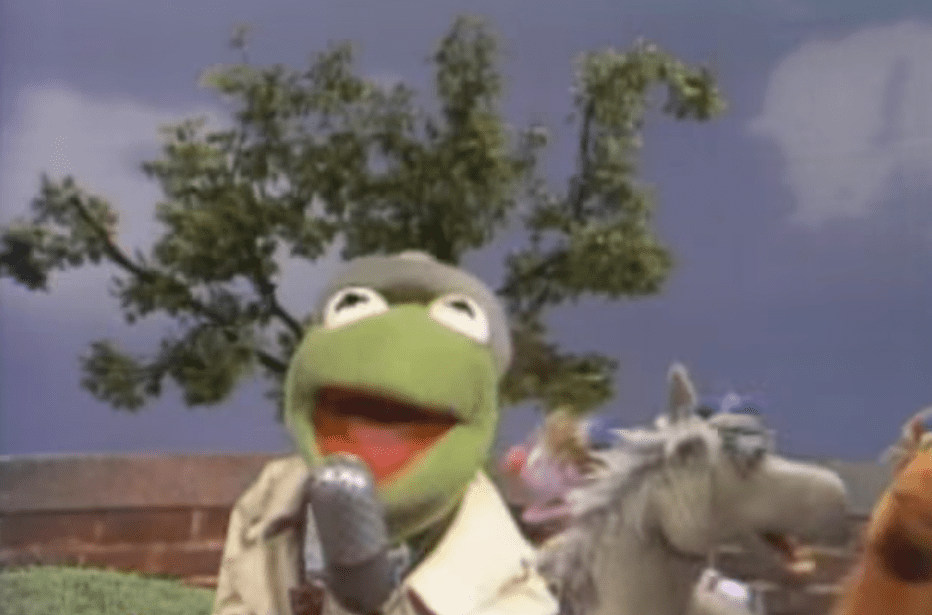 Sesame Street, Sesame Workshop
Sesame Street, Sesame Workshop
30. #1 Guest Star
The character of Kermit the Frog is unique in that he is the only one of the show's Muppets not owned by the Sesame Workshop (which owns Sesame Street). In 1970, various media outlets reported that Kermit was being dropped from the show because he was "too commercial," but he returned a year later.
Because of his existence outside of the show, Jim Henson always considered Kermit to be a guest star rather than a permanent character, and he’s referred to as “Sesame Street’s #1 Guest Star".
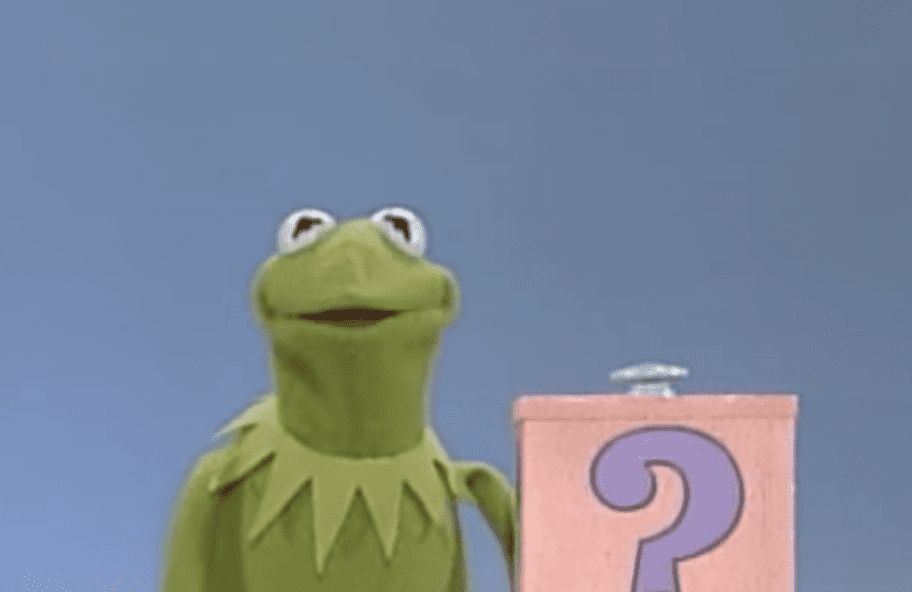 Sesame Street, Sesame Workshop
Sesame Street, Sesame Workshop
31. Avenue B
Sesame Street was originally going to be called "123 Avenue B," which would have been a great name except for one thing—the producers found out that their proposed name was actually a real address in New York City, and as a result had to change the name.
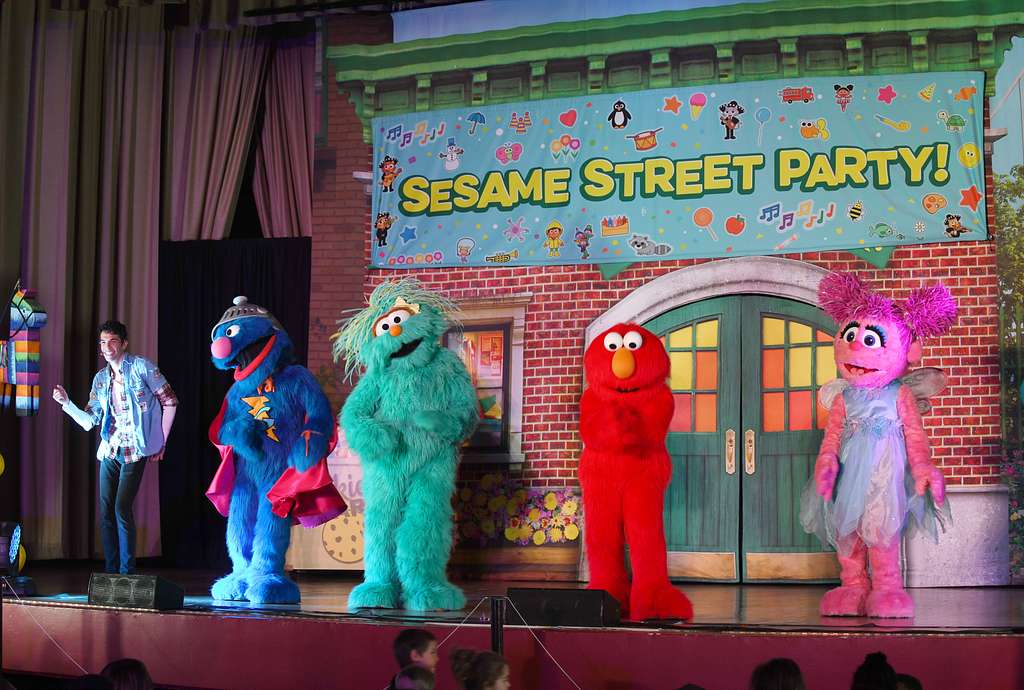 Defense Visual Information Distribution Service, Picryl
Defense Visual Information Distribution Service, Picryl
32. A Song for the Frog
Kermit’s famous song "Bein’ Green" has won acclaim for its message of individuality, self-acceptance, and race. Written by Joe Raposo (the man behind "Sing" and "C is for Cookie"), the song has been performed by Frank Sinatra, Diana Ross, Ray Charles, Tony Bennett, and many more. Billboard ranks it as the #1 Sesame Street song of all time, and to think it all started with a simple request from one of the show’s producers who said, “We need a song for the frog".
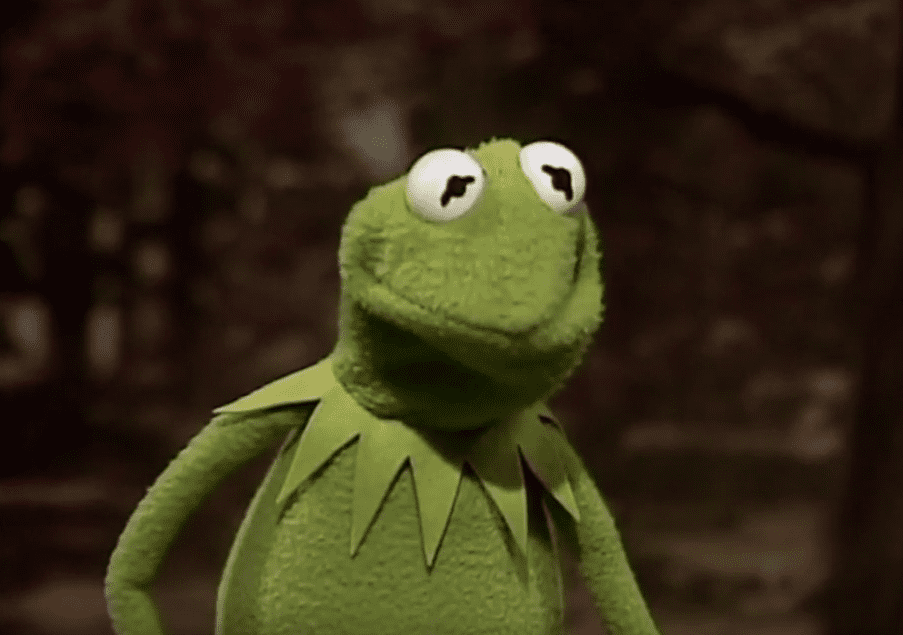 Sesame Street, Sesame Workshop
Sesame Street, Sesame Workshop
33. Expanding Online
Even Sesame Street finds ways to stay relevant in the 21st century. In recent years, the show expanded to a YouTube Channel that boasts 5.633 million subscribers. New original videos are posted every week, featuring all of the beloved characters from the show, as well as some throwback videos. In June 2018, Sesame Workshop also signed a big deal with Apple that will include a Sesame Street-themed show that will teach kids coding.
34. It’s Back!
After a 25-year hiatus, Iftah Ya Simsim, the Arabic-language version of Sesame Street, returned to airways in the Middle East in 2015. The show was forced to stop production during the Gulf Battle, and the new version includes many of the popular characters from the American version such as Elmo, Bert and Ernie, and a Cookie Monster who eats biscuits. The new show also includes No'man the camel and two local human stars.
35. Autism Awareness
In 2015, Sesame Street introduced Julia, a four-year-old Muppet with Autism. The character was originally created by Leslie Kimmelman for the digital storybook We're Amazing, 1, 2, 3!. Kimmelman used her own experiences as the mother of a child with autism, as well as advice from the Autism community, for the story.
The response was so positive, she became a physical Muppet with her own family and storyline. In 2018, she appeared on the Sesame Street float at the Macy’s Thanksgiving Day Parade wearing noise-canceling headphones to keep the noise from the parade from upsetting her.
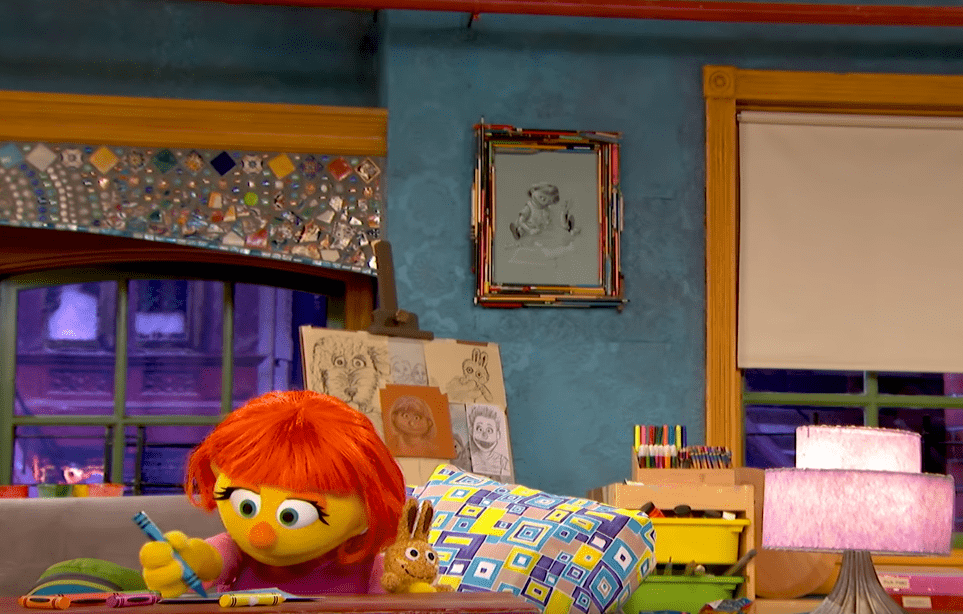 Sesame Street, Sesame Workshop
Sesame Street, Sesame Workshop
36. Blown Away
"Even Sesame Street gets bad weather sometimes" was the message of a special five-part series on hurricanes that first aired in 2001, and then again in 2005 after Katrina, and then again (albeit a more condensed version) in 2012 after Sandy. The series showed a devastating hurricane hitting Sesame Street, destroying Big Bird’s nest and causing major damage to the neighborhood. In the most recent airing, rather than focusing on the characters preparing for the storm, it focused on Big Bird’s loss, and how people recover from disasters.
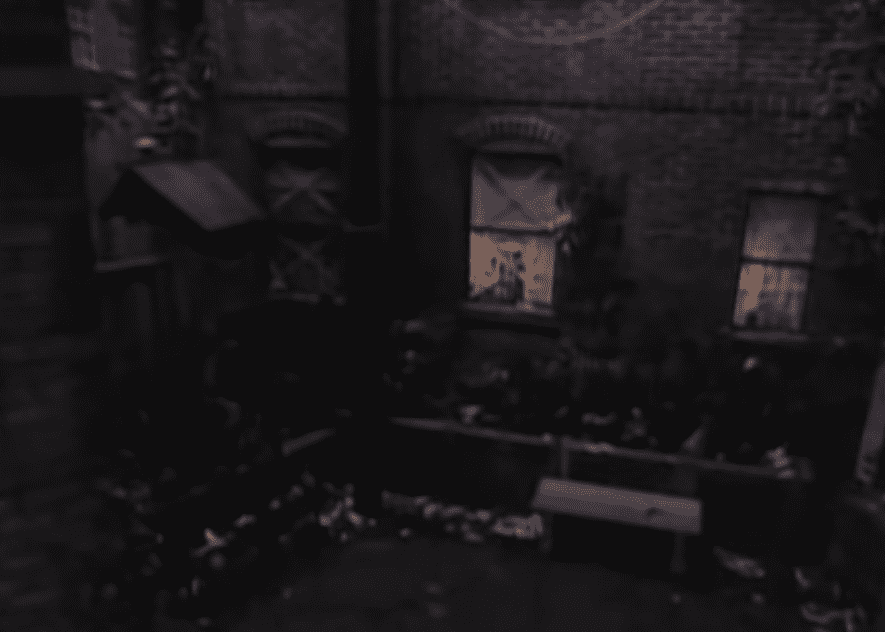 Sesame Street, Sesame Workshop
Sesame Street, Sesame Workshop
37. Alien Visitors
The Martians, otherwise known as the Yip Yips, are visitors from outer space who are totally blown away by ordinary objects such as telephones and computers. In each skit, they teleport into the room saying “yip, yip, yip...Uh-huh, uh-huh" in a monotone voice, before consulting the Earth book to try and learn what the object is.
Based on their guess (which is usually wrong), they attempt to communicate with it. When they get it wrong, they shake their heads and say “nope, nope, nope". The characters are not nearly as well-known as Elmo or Grover these days, but come on, who hasn’t recited the "yip yip song" in public at least once?
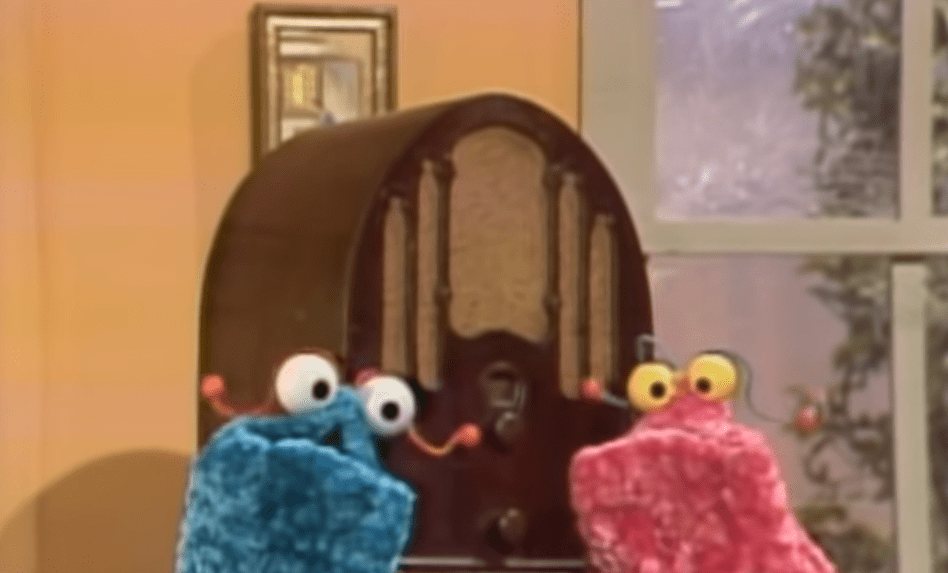 Sesame Street, Sesame Workshop
Sesame Street, Sesame Workshop
38. My Bad...
When the producer of Sesame Street heard the "Mah Nà Mah Nà" song on the radio, she knew it would be perfect for the puppeteer Jim Henson to perform on the show. A week after debuting on Sesame Street, the Muppets performed it on Ed Sullivan, skyrocketing the song to popularity. In 1976, Henson used the song again on the debut episode of The Muppet Show. Little did anyone know, the song was originally composed for an Italian film called Sweden: Heaven and Underground, which covered such topics as adult video, swinging, drug addiction, and self-immolation in Sweden.
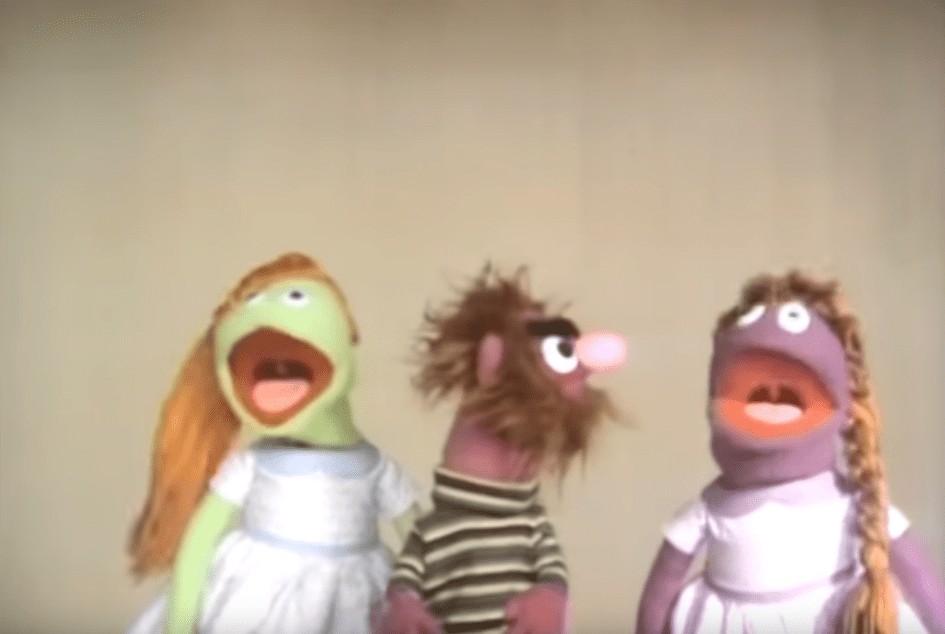 Sesame Street, Sesame Workshop
Sesame Street, Sesame Workshop
39. Darth Vader Recites the Alphabet
James Earl Jones was the first celebrity guest to appear on Sesame Street. In a 1969 episode, Jones appeared in a segment where he slowly and carefully recited the alphabet, with each letter appearing on screen shortly before he said it. The show's creators noticed that the slow pace and the anticipation of the letters led children to pay close attention—and upon second viewings, they would start saying the letters themselves before Jones.
They termed this the "James Earl Jones Effect," and it has been used as an educational tool ever since.
40. Star Wars Connection
At the height of the Star Wars craze in the 1980s, the droid characters C-3PO and R2-D2 visited Sesame Street on two separate occasions. Anthony Daniels, who performed C-3PO in the movies, reprised the role for the guest spot, and in a 2014 interview with EW, he expressed how much he loved appearing on the show. Who wouldn’t?
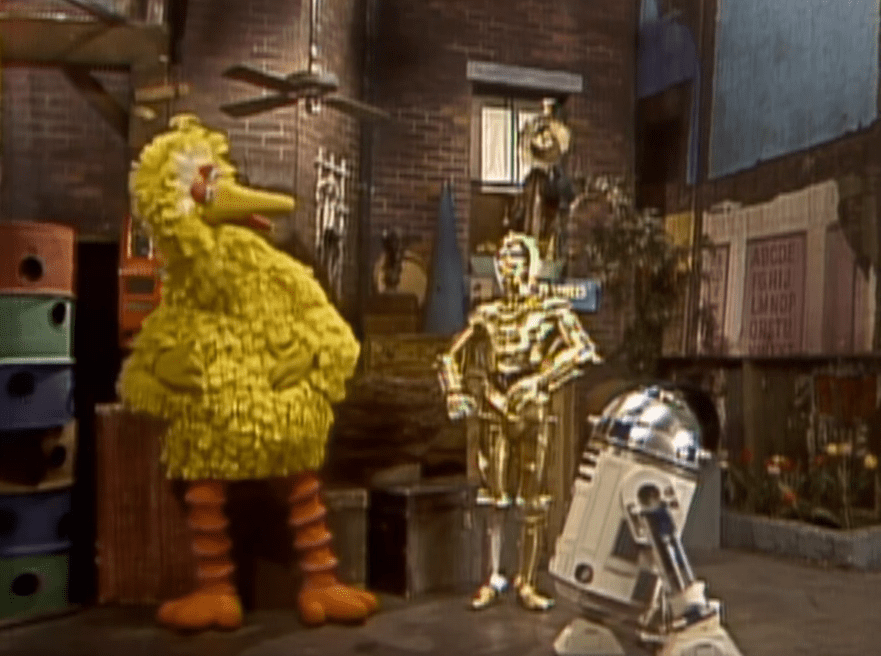 Sesame Street, Sesame Workshop
Sesame Street, Sesame Workshop
41. Sharing a Smooch
Over the years, four different American First Ladies have appeared on the show, beginning with Barbara Bush, and most recently, Michelle Obama. They all visited the Street to talk to viewers about issues such as healthy eating, and Hillary Clinton even shared a kiss with Oscar!
42. Seeing Double
Although Ernie and Bert are like family on the show, Bert actually has an actual family member: his identical twin! Bart first appeared in 1974, and he's appeared sporadically since then. He's upbeat and cheerful, and he makes his living as a traveling salesman.
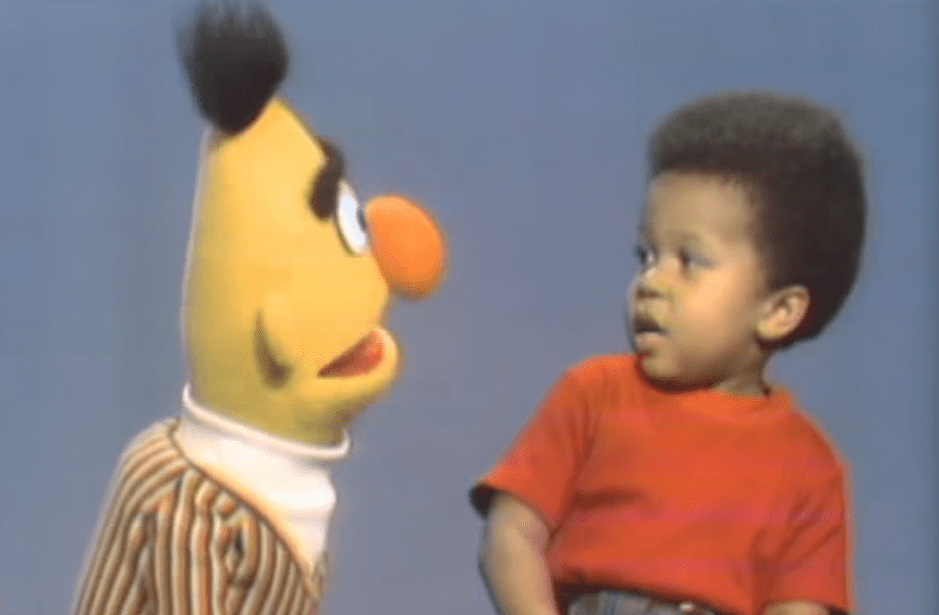 Sesame Street, Sesame Workshop
Sesame Street, Sesame Workshop
43. The Place to Be
Most celebrities don’t have to be asked twice to appear on Sesame Street. Since its premiere, over 700 guests have appeared on the show, ranging from Carol Burnett to Jay Leno to Ryan Reynolds. Is there anyone who hasn’t been on?
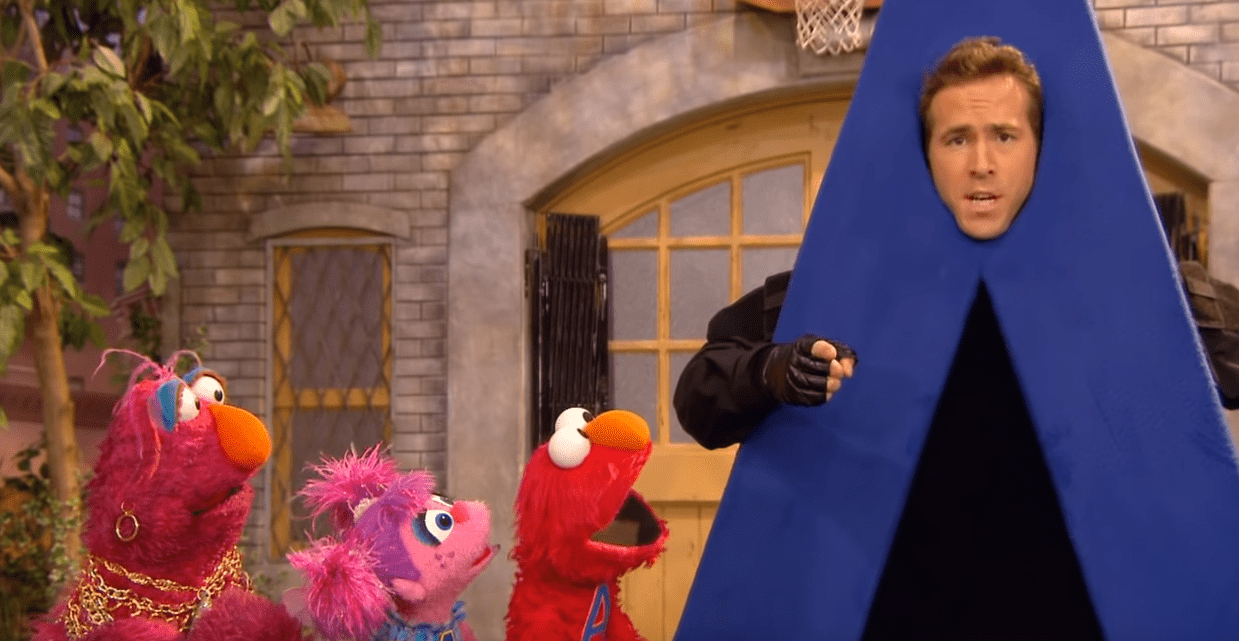 Sesame Street, Sesame Workshop
Sesame Street, Sesame Workshop
44. Too Scary!
In a now banned episode of Sesame Street from 1976, Margaret Hamilton, who played the Wicked Witch of the West, reprised her role for a guest spot on the show. The Witch comes to Sesame Street looking for her broom and threatens to turn Big Bird into a feather duster unless she gets it back.
Not surprisingly, Oscar totally falls for the nasty old witch—she's just his type! The episode aired once and was banned shortly thereafter due to numerous negative letters from parents who said that the witch had frightened their kids. Oops!
 Gary E. Miller, Wikimedia Commons
Gary E. Miller, Wikimedia Commons
45. Live-in-Lovers?
For many years, audiences wondered if Bert and Ernie are actually gay life-partners, with some hoping that they'll get married on the show. To these fans' disappointment, the show-runners categorically denied this claim. It's not that the show is problematic, they said, but that Bert and Ernie are best friends. Also, Muppets have no gender orientation at all. (But if that's true, what's up with Kermit and Miss Piggy?).
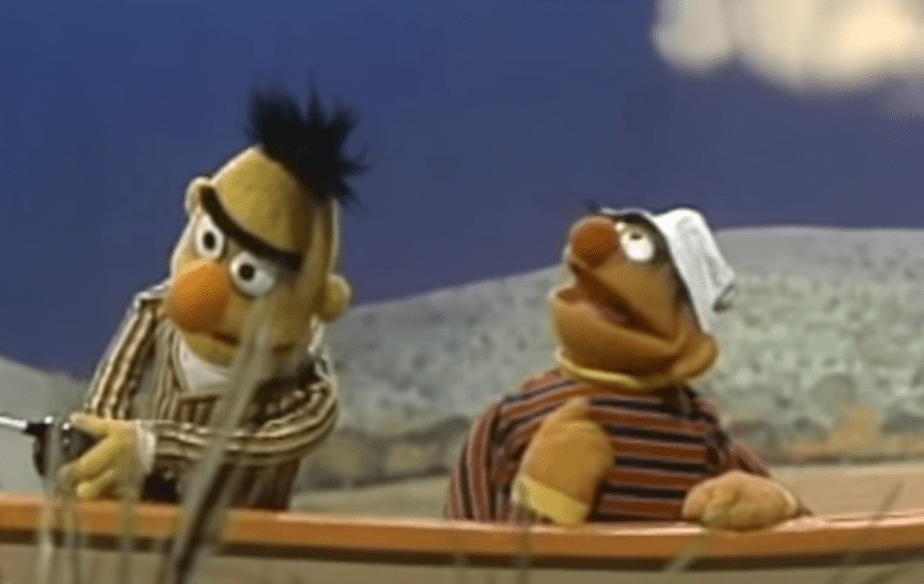 Sesame Street, Sesame Workshop
Sesame Street, Sesame Workshop
46. Who Would You Pick?
Sesame Street’s Social Media team asked followers to choose one Muppet to summon if stranded on a deserted island, and the choices were between Grover, Cookie Monster, Oscar the Grouch, and Elmo. Fans of each of the characters campaigned hard for their choice, with many celebrities including director Joss Whedon jumping into the fray.
Many agreed that Cookie Monster would just eat whatever food they had, Elmo would get super annoying, and Oscar just has too much of a bad attitude, leaving Grover as the strongest choice. Since none of the others were ever superheroes, that totally makes sense!
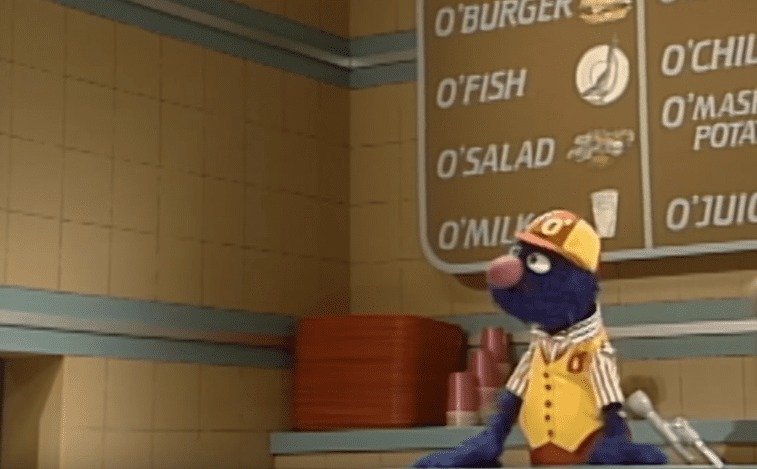 Sesame Street, Sesame Workshop
Sesame Street, Sesame Workshop
47. Mailing the Muppets
In 2019, the USPS announced that they’d be releasing a series of 16 stamps inspired by the characters of Sesame Street, in honor of the show's 50th anniversary. The stamps will feature Cookie Monster, Oscar, Elmo, Grover, and more—and of course, who could forget our favorite giant bird?
48. Banned in Mississippi
Believe it or not, Sesame Street was once banned for 22 days in Mississippi. In response to objections from certain groups, a State Commission formed in 1970 determined whether or not the show should be allowed to air. The five-person panel ruled that Sesame Street should be banned, arguing that the citizens of the state just weren’t ready for the diverse group of children.
Somebody on the panel apparently didn’t feel the same way and leaked the decision to the New York Times. Not surprisingly, less than a month later, the Committee reversed their decision and put Sesame Street back on the air.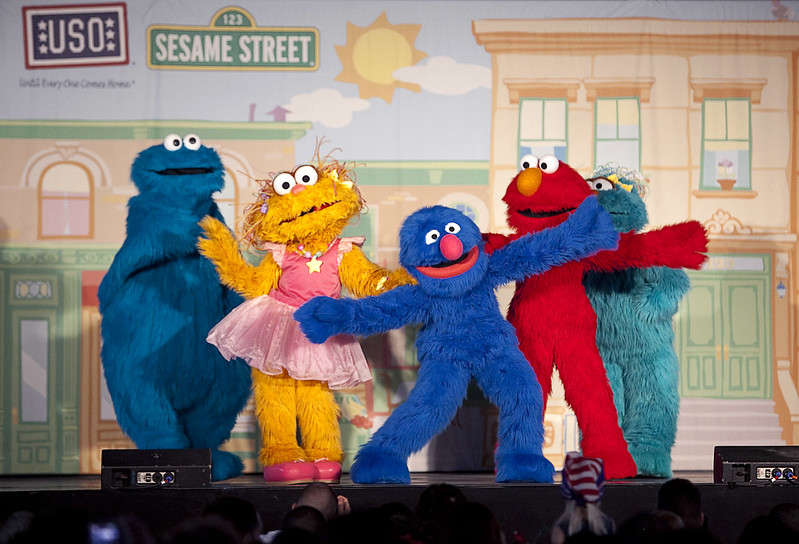 Herald Post, Flickr
Herald Post, Flickr
49. Sesame at Sea World
In March 2019, Sea World Orlando opened a 6-acre Sesame Street Land featuring rides such as Elmo’s Choo Choo, Super Grover’s Box Car Derby, and Abby’s Flower Tower. Guests can interact with their favorite characters, visit Hooper’s store, hang at the 123 Stoop, and best of all, get their pictures taken with Elmo and Cookie Monster. Say Cookie!
50. Elmo Goes to Washington
Elmo is the only non-human (and Muppet) to ever be invited to speak before Congress. In 2002, he appeared before the House Appropriations Subcommittee (with his muppeteer) to ask for more money for music education and research in schools. As Elmo said, what he really hoped was that "when Elmo goes to school, there will be the instruments to play".
Sources: 1, 2, 3, 4, 5, 6, 7, 8, 9, 10, 11, 12, 13, 14, 15, 16, 17, 18, 19, 20, 21, 22, 23, 24, 25, 26, 27, 28, 29, 30, 31, 32, 33, 34, 35, 36, 37, 38, 39, 40, 41, 42, 43, 44, 45, 46, 47, 48, 49


